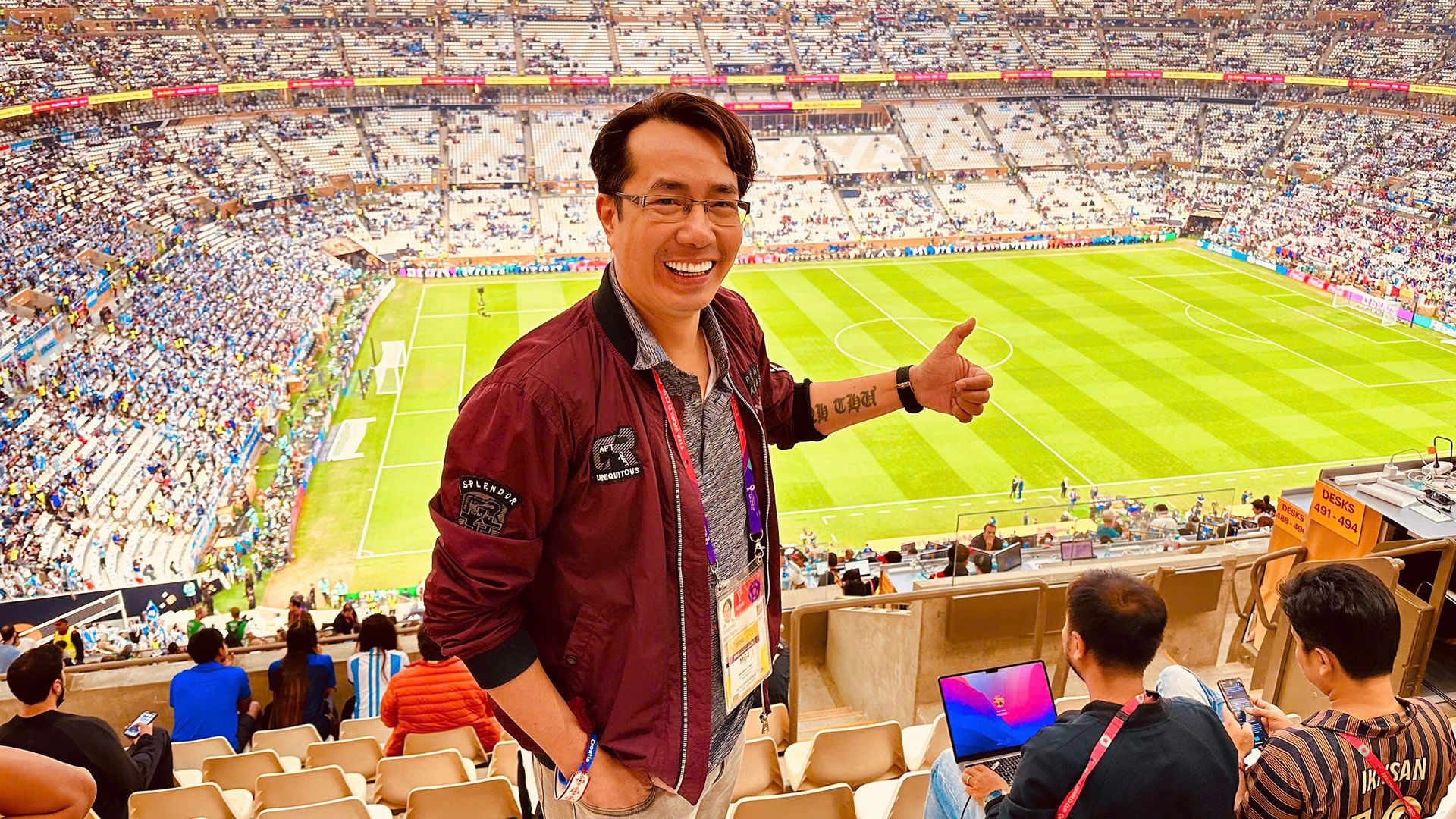
Life and career stories of journalists
A journey of living fully with the truth, bravely and differently
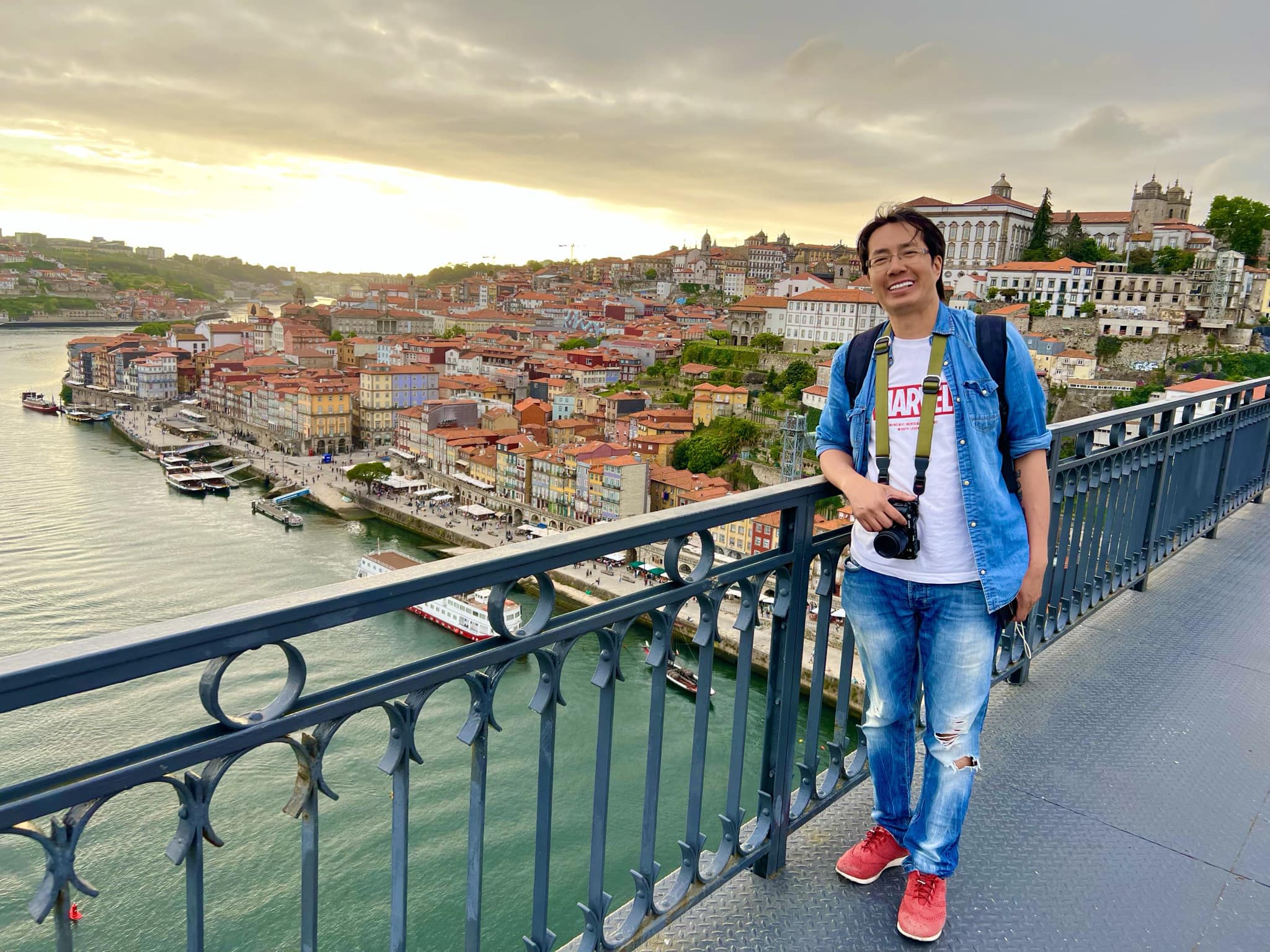
Journalist Truong Anh Ngoc in Porto city, Portugal.
The first pages of books
Reporter: Books opened up the world to you very early. Do you remember the first feeling when you read and “saw” the world through those pages?
Journalist Truong Anh Ngoc: I was lucky because my father was a reporter for the Vietnam News Agency. During my childhood, whenever my father went to work, he often "locked" me in the house, like many of my peers whose parents went to work at that time, and at home, I read many books that my father brought home from work. It was those books that opened up a completely different world for me.
It was the 1980s, when Vietnam was still under embargo, going abroad was extremely difficult. There was no internet, no social media, and TV content was poor. However, it was the pages of books that became the first door leading me to the world .
I mention my father because his articles have inspired me in a special way. My father was a reporter for the Liberation News Agency, working in the battlefields of the South, such as the Quang Tri front in 1972.
I still remember sitting at home, turning the pages of my father's newspaper about the fierce battles, and wondering: "Why could my father write such things? Why was he in such places? Can I become such a person?"
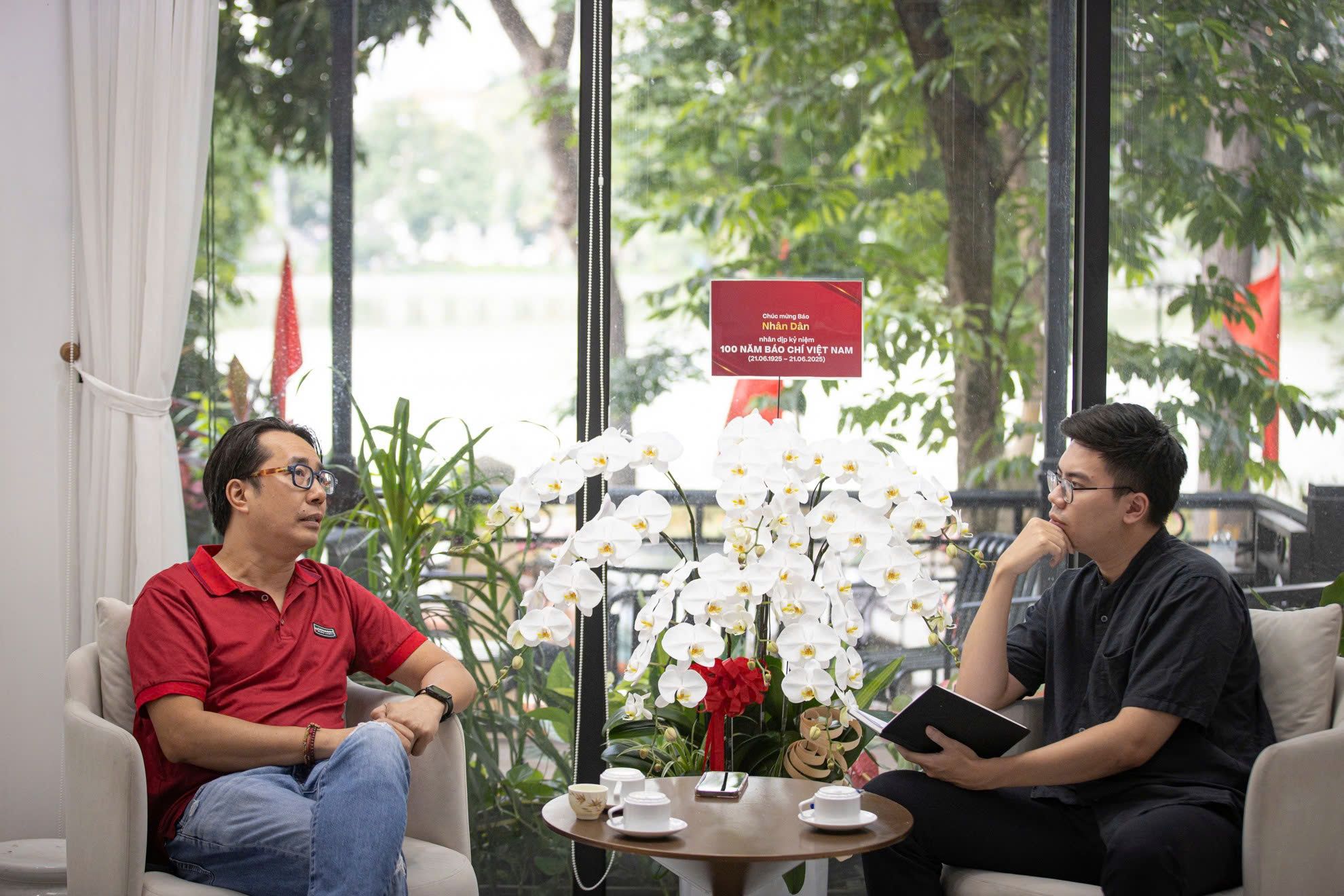
Journalist Truong Anh Ngoc shared with Nhan Dan Newspaper reporter.
I started asking these questions when I was in third or fourth grade. When I was in fifth grade, my uncle, a naval officer, gave me a huge world map of the US Navy. I spread the map out on my bed, then on the floor, and sat there contemplating each place name and each country.
But just looking at it wasn’t enough, I asked for a large piece of cardboard and drew the entire map by hand. And from that moment on, I had a very specific dream: one day, I would set foot on those dots on that map – places I could only see on paper as a child.
Then one day, I read a novel about American television reporters investigating terrorist organizations. The story fascinated me . I began to imagine a journalist who not only reported the news, but also committed himself to finding the truth, getting to the bottom of what was hidden.
The love for journalism came naturally , no one pushed, no one guided. My father never said a word about it or advised me to choose this career. But I read what he wrote, I observed the world through books, photos of world-famous photographers, and I wanted to live like that.
At one point, I decided to study journalism. My father supported me, even though he only said one short sentence: "This is your choice. But if you become a journalist, you must know that it is an extremely difficult and tiring job. I cannot be responsible for that, only you can decide your own path."
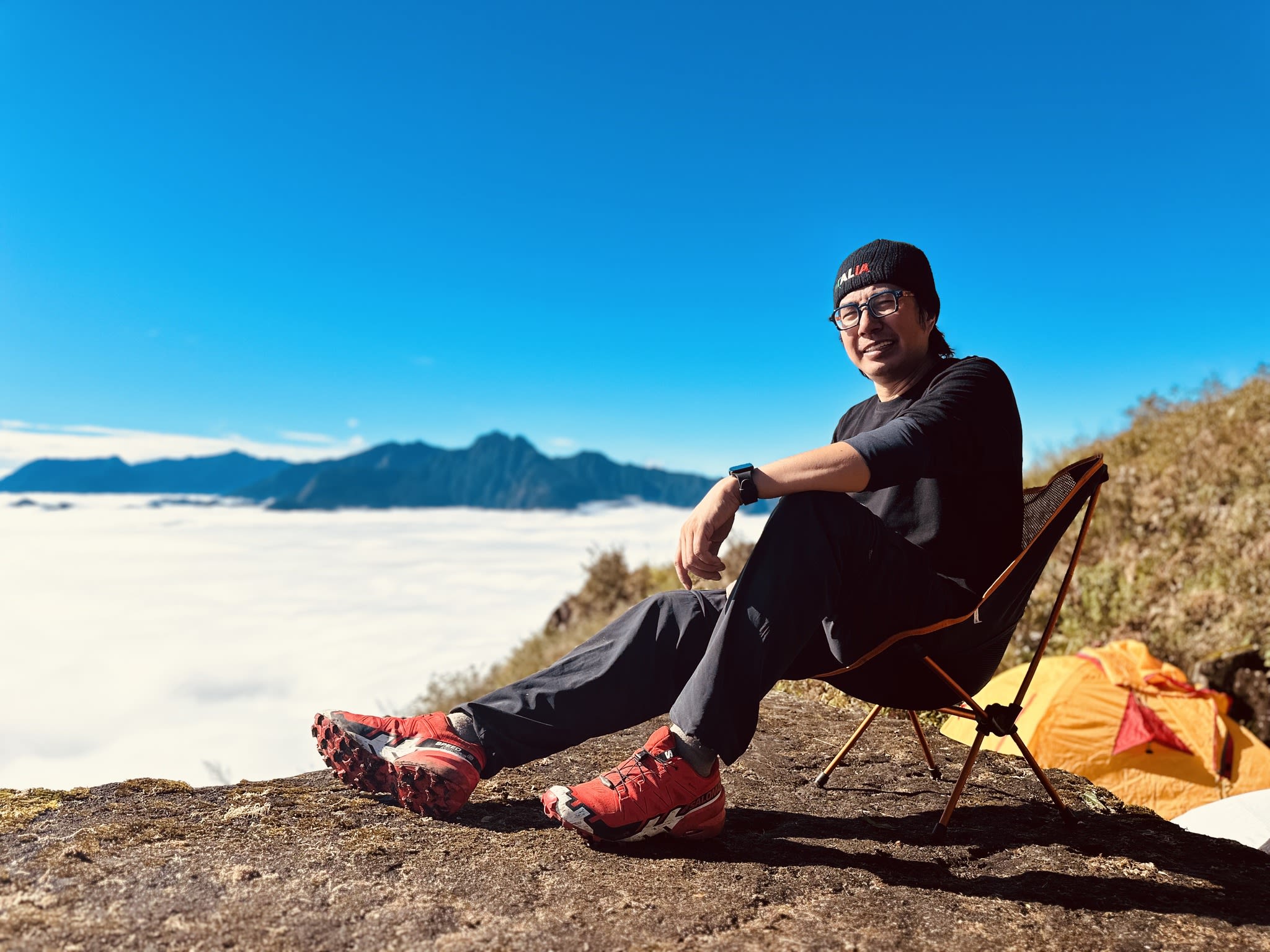
Journalist Truong Anh Ngoc hunts clouds in Y Ty, Bat Xat, Lao Cai .
Reporter: So what kind of environment were you trained in journalism in?
Journalist Truong Anh Ngoc: I studied journalism at the University of Social Sciences and Humanities. Besides studying in class, I also like to study by myself . To be honest, I skipped a lot of classes during my time as a student. But that was because I spent most of my time learning in my own way: reading, writing, traveling and experiencing.
So, while my friends were still taking introductory journalism classes, I was already doing fieldwork, writing articles (actually, I started having articles published in newspapers when I was in high school), going to the scene, and getting used to holding a notebook, taking notes, interviewing, and editing articles.
I'm not too heavy on theory, which I always try to transform into practical experience by... picking up my backpack and going.
Journalist Truong Anh Ngoc
I often go alone, to observe, to learn, to write. People often say “practice makes perfect”, but for me… practice even more than study.
In four years of university, what I got was not academic performance, which was very average, each year worse than the previous, but a lot of articles, a lot of trips, a lot of real-life collisions .
I was not surprised when I entered the editorial environment, because I had followed my father to his office many times since I was little, familiar with the atmosphere of the departments, the people in the profession and the working style of reporters and editors. I understood clearly how a newsroom operated, and how reporters worked.
Thanks to that, when I graduated, although my grades were not outstanding, and my scholarships kept dropping year by year and by the end of the year there were no scholarships left, I already had a pretty solid foundation in the profession. Right after graduating, I received invitations from many press agencies, even some advertising companies.
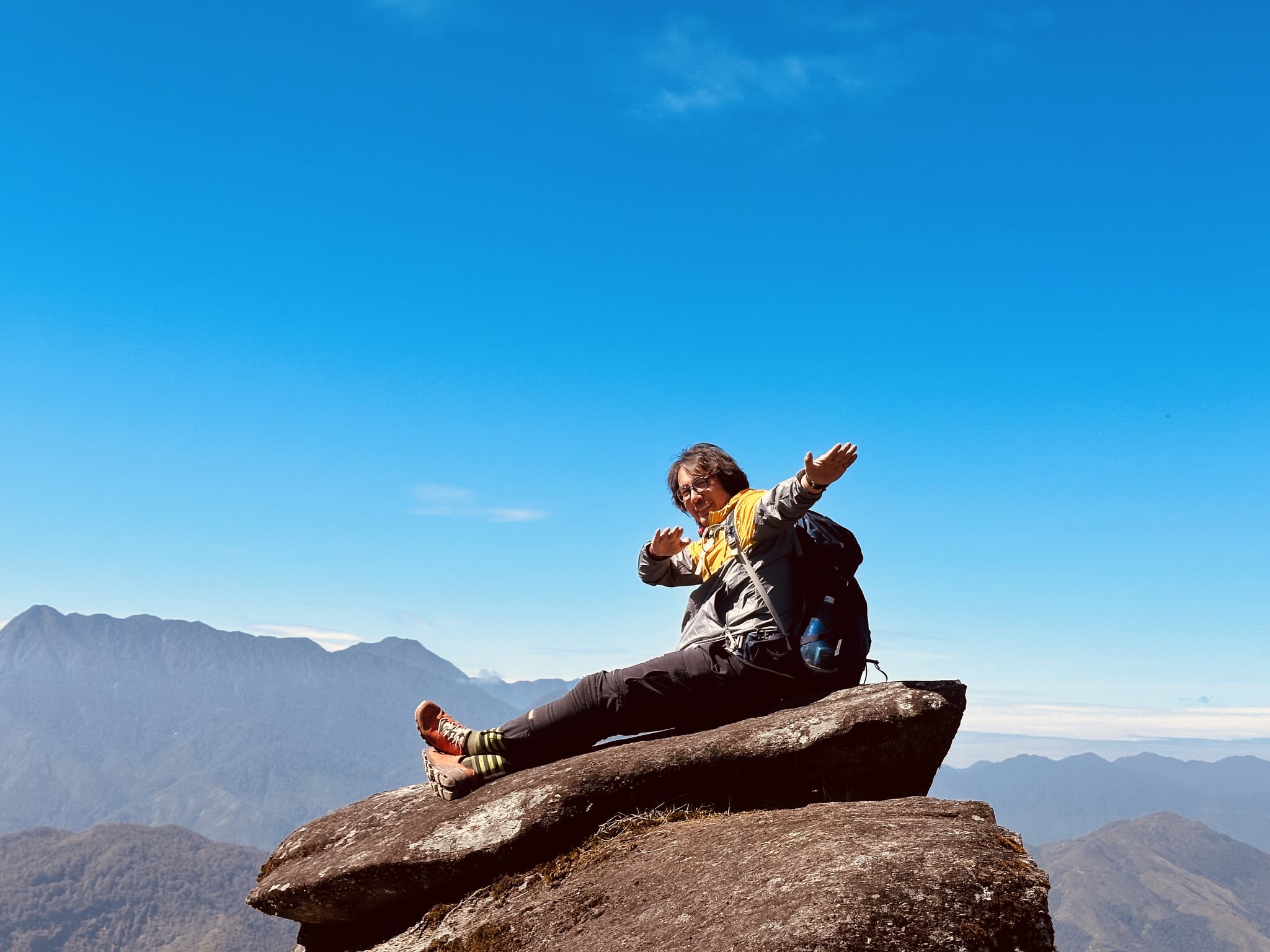
"Go while we are young" - Title of the book by journalist Truong Anh Ngoc.
Reporter: When you first started your career, what was the biggest obstacle you encountered? And how did you overcome those obstacles to become one of the outstanding reporters, especially in the sports field?
Journalist Truong Anh Ngoc: Although I once said I was lucky to have a father working in the profession, but unintentionally, my father was the biggest obstacle . When I graduated, my father was holding an important position at the Vietnam News Agency and wanted me to work there. But I refused.
I always thought that the phrase “son of a powerful person” was very heavy. No matter how capable I was, if I came to work at the News Agency, all my achievements would easily be labeled as “he is just his father’s son”. I did not want to live in anyone’s shadow, including my father.
So I chose a different path : to work in television at Hanoi Radio & Television, an environment completely foreign to my family, where no one knew me, and no one supported me. I had studied television, but it was a very "difficult" choice, full of challenges, and I chose it because I wanted to practice, intern, learn and determined from the beginning to succeed.
From that environment, after 4 years, I gradually gained a foothold, becoming a famous TV commentator at the age of 24, an age at which not many people in the press industry achieve such recognition.
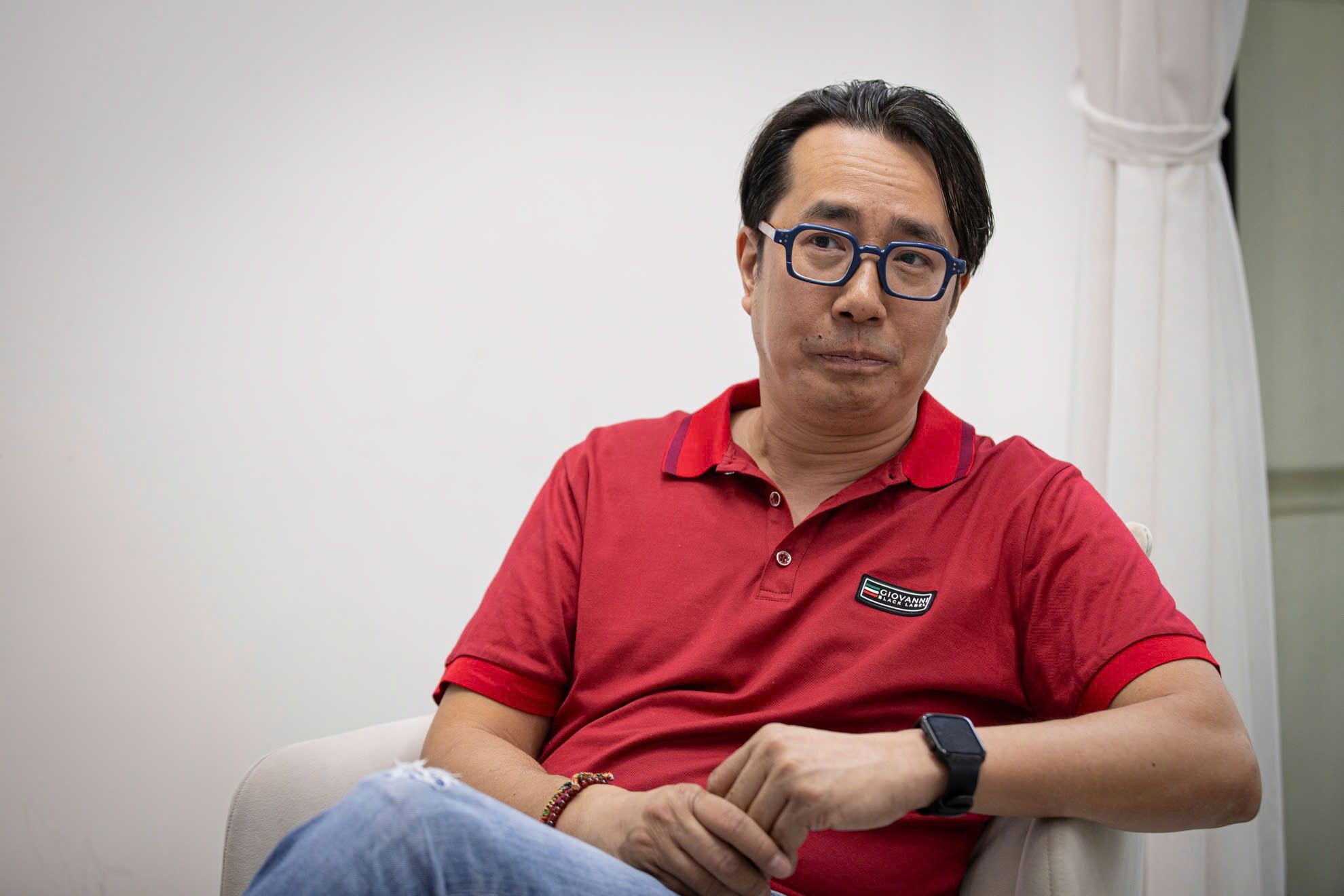
However, the title of commentator is another difficulty. When I left Hanoi Radio to move to the written environment, I had to make a lot of effort to make people see me as a journalist , not just a football commentator .
It was too strong a “shell” - a name that was formed too early. And the fact is that until now, many people still call me a commentator, not a journalist. Breaking out of that name, creating a new style and position is not easy.
Because of that, I traveled a lot, wrote a lot, and expanded the topics I pursued.
Journalist Truong Anh Ngoc
Football is only a small part of my work. I write books, I was the head of the Vietnam News Agency's permanent office in Italy for two terms. I live in Rome, work internationally, have published 5 books so far and am preparing to publish my 6th travelogue - and only then will people start calling me a journalist in the true sense.
I determined: football commentary is a passion, I can live with it for the rest of my life. But what I really want is for people to remember me as a professional journalist , with a full career journey. And to achieve that, I had to work hard for many years. It was not easy at all.
If you want to succeed, you must dare to be different.
Reporter: As one of the few Vietnamese journalists who have worked at many EURO and World Cups, you always delve into sideline stories. What is the moment that you remember most?
Journalist Truong Anh Ngoc: I can tell hundreds of stories from every World Cup or EURO that I have participated in, because for me, each tournament is a journey full of experiences.
I have the advantage of having worked abroad since I was young, having lived in Europe as a resident reporter. Therefore, every time I go to a country that hosts a tournament, I don’t need time to adapt. I am used to the international working rhythm, understand the people, culture and social context there.
I do not just see the World Cup or EURO as a sporting event, but as a "mirror" reflecting the society, history, culture and politics of the host country during the tournament.
Journalist Truong Anh Ngoc
I still write about the matches, the players, the goals, but what I care about more deeply is : how do the people there live? Do they really care about the World Cup? Why are there people indifferent to football? The stories behind the pitch are always more interesting to me than what happens on the 5,400m² of grass.
Each trip lasts about 30-35 days , and every day I write a few thousand words. No two days are the same. And a reporter for the Vietnam News Agency must be multi-talented. I also have to take photos of events, write news for online newspapers, and make TV reports every day, filming, creating, and editing myself.
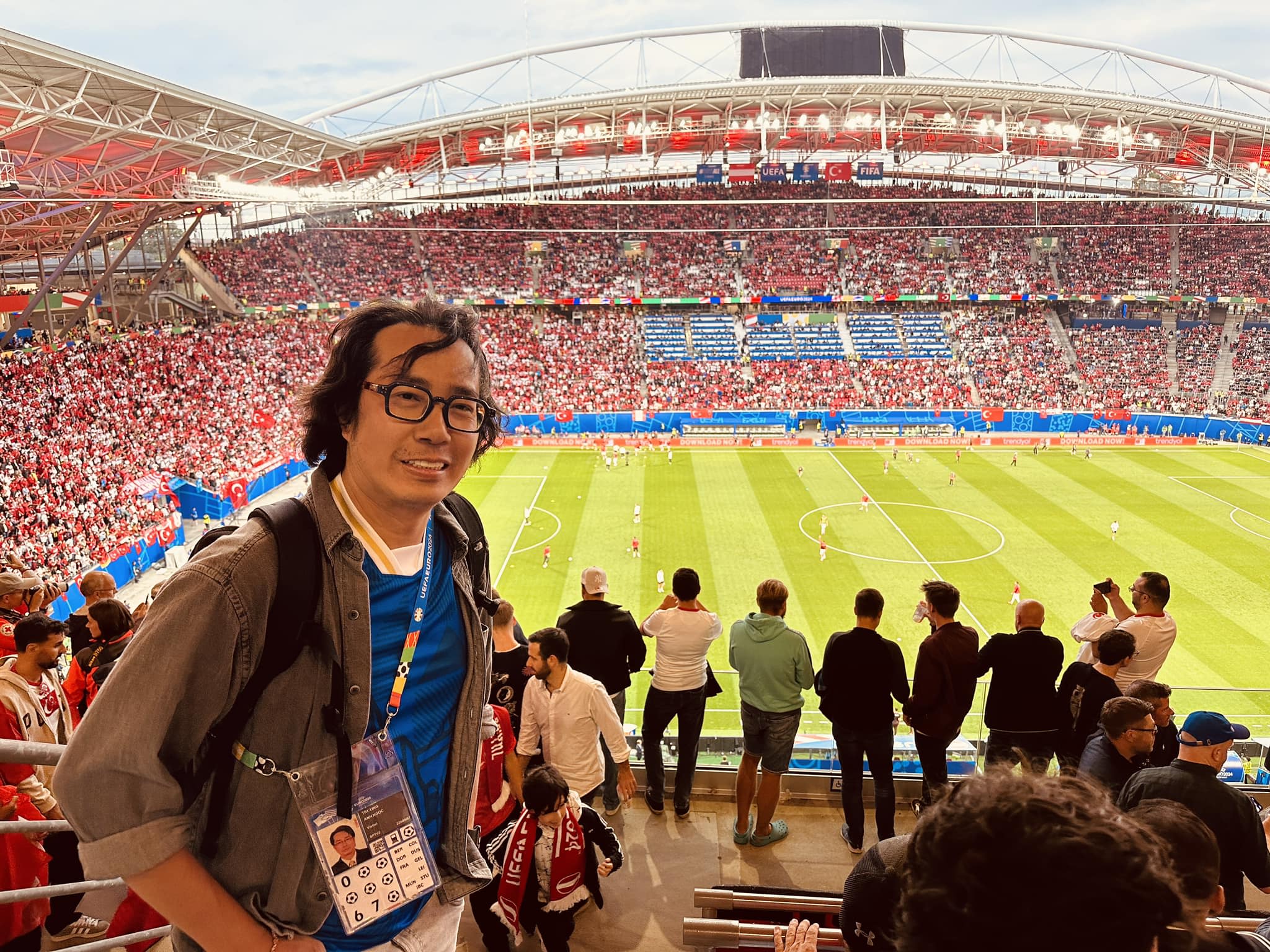
Journalist Truong Anh Ngoc works at Red Bull Arena stadium during EURO 2024.
I always plan my trips to those tournaments very early, usually 6 months before the tournament.
Every place I visited in the recent EURO such as Hamburg, Munich, Düsseldorf, Berlin, Bremen... had a specific schedule: what to write, where to post, what topic to explore, including historical stories, local culture or small details like... the statue of the Bremen musician. I had to go there, take pictures of it, feel it, after reading a lot of information about this place.
For that trip to Germany, I had to do a lot of research : Politics, immigration policy, far-right movements, folklore, Grimm's fairy tales... The more I read, the more I understood. I always carried a notebook, saved ideas on my phone, and quickly recorded anything that came to mind.
Nowadays, the cost of travel is very high. Many agencies no longer send 2-3 people like before, so a reporter like me has to "shoulder" everything: news, articles, television, photos, behind the scenes. Therefore, I have to calculate the itinerary so that I can be present on the field, while ensuring that I have enough material to write a travelogue, and more importantly - to write a book.
The articles written at the World Cup or EURO are often the “seeds” for my later travel books. Newspapers can only publish limited content because of the limited format, while books are where I can tell more and more in depth. The five travel books I have published all have their core formed from such trips.
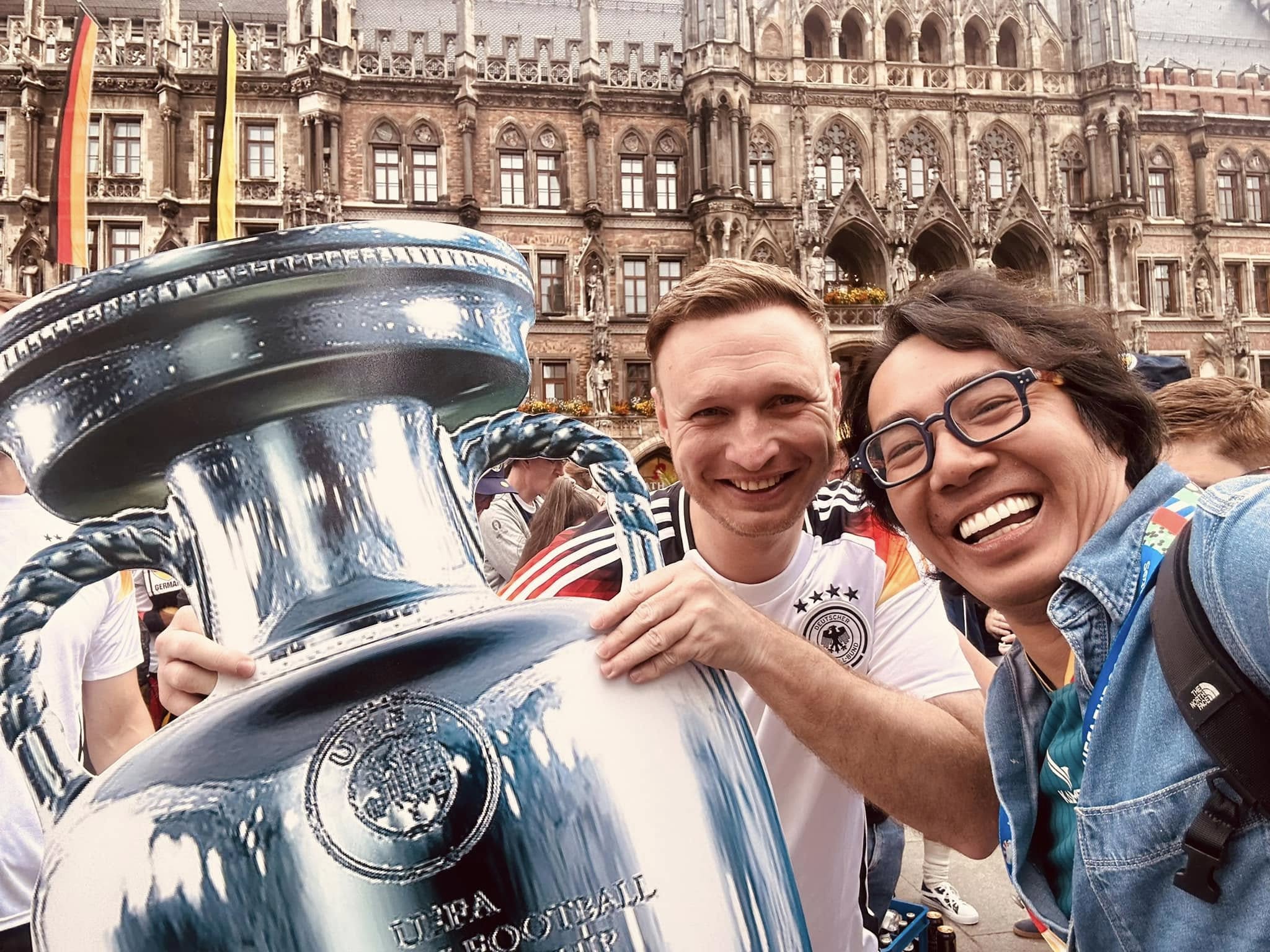
Journalist Truong Anh Ngoc with a German fan during EURO 2024.
That's why I always consider the EURO or World Cup not only as a journalistic job, but also as a learning trip, self-training, improving both physically and mentally.
It may sound strange, but to prepare for a World Cup, I started training my body many months in advance: increasing my physical activity, running, walking. I trained regularly to avoid exhaustion during 30 to 40 consecutive days of work.
There were days when I had to walk 20 to 30km, staying up all night to meet deadlines for newspaper and television articles without being overwhelmed by work pressure. Not to mention the psychological pressure, stress, weather... if not well prepared both physically and with information for the trip, journalists will collapse in the middle of the journey.
Reporter: When you changed from a sports reporter to a writer of books and travelogues, did you ever worry that you were “going astray” or losing your journalistic identity? What makes travel writing different from your regular journalism work?
Journalist Truong Anh Ngoc: Actually, what I write in my columns all have the appearance of travelogues - a genre that is a cross between journalism and literature.
In the article, I am a journalist-traveler who travels everywhere on journeys by all kinds of means and has a very wandering nature. But I still include numbers, facts, current statistics, and at the same time, I also incorporate emotions, life materials and personal feelings. Later, when writing books, I often have to rewrite those articles, develop them further and add more details, making them more literary.
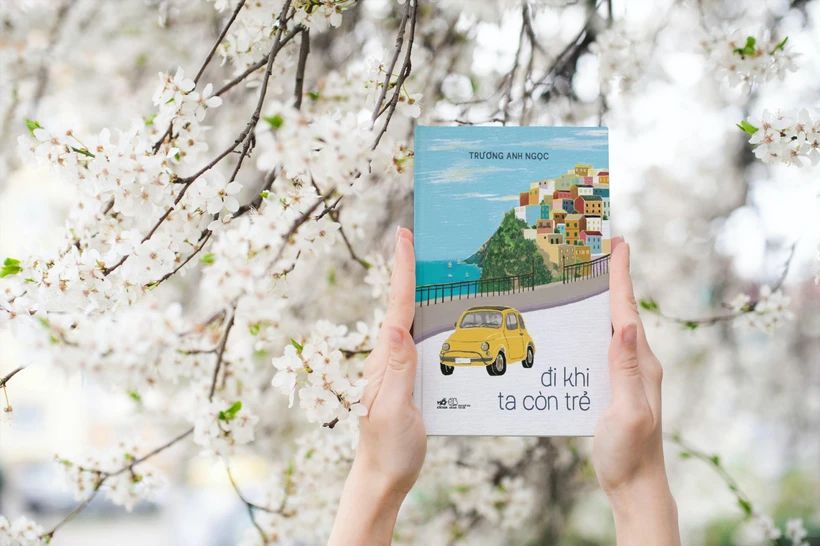
The book "Travel When We Are Young" by journalist Truong Anh Ngoc.
I often compare an article to a coat hanger: the article frame is the journalistic frame – neat, coherent, informative, no need to be flashy. But when turning it into a book, I can “put on” that same frame a different coat: more poetic, more romantic, more personal, more “me”.
There are details that cannot be included in newspapers due to space limitations or genre standards, but in books, I am allowed to recount, deepen, and expand. And to do that, I have to prepare in advance - both materials, emotions, and ideas.
I see it as a way to make the trip not only effective journalistically, but also truly valuable creatively.
Journalist Truong Anh Ngoc
My writing style is inherently romantic, true to travel writing: relaxed, full of emotion, but still maintaining structure and rhythm so that readers can clearly feel the breath of life in the places I pass through. In newspapers, I incorporate current events; in books, I remove those current events to make room for people, characters, and the individual self.
Luckily, since 2008, when I started working at the first EURO, the Sports and Culture newspaper of the Vietnam News Agency has been very open to this writing style. I was allowed to express myself, to describe the journey in a very personal voice - something that not every newspaper allows. That is something I really appreciate.
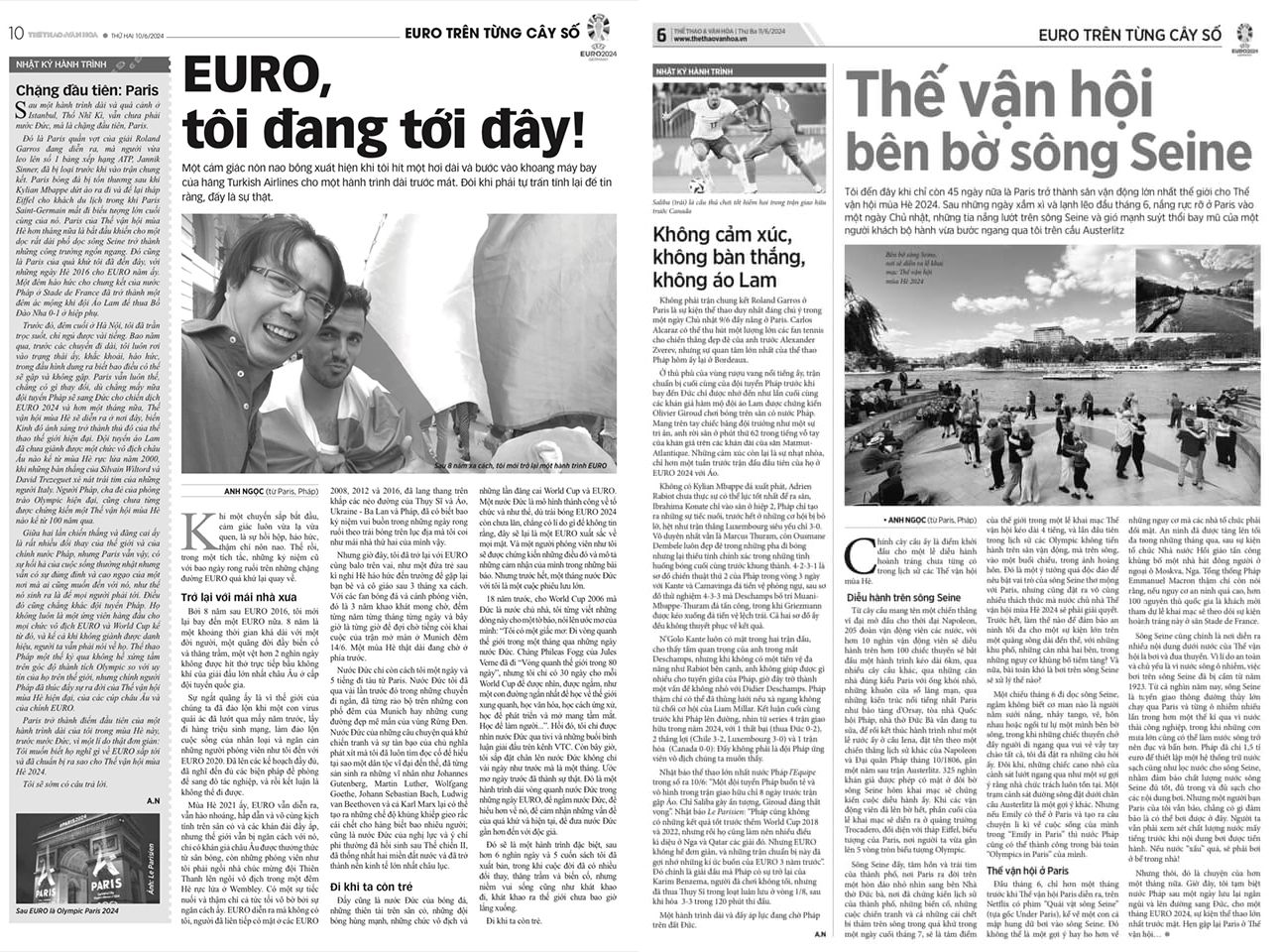
Some articles by journalist Truong Anh Ngoc published in Sports & Culture newspaper.
Reporter: You almost lost your life in South Africa, Brazil and were threatened with death in France because of your reporting. What motivated you to rush into such “hot spots”? And have those experiences changed the way you view journalism?
Journalist Truong Anh Ngoc: Those stories are just a few examples of the many risks that journalism brings, especially when you work alone, without teammates to support you. At that time, anything can happen.
Many journalism students have asked me: “ Is it necessary to do that ? Just going to the stadium, training ground, team hotel, or following the fans is enough, why do we have to go to dangerous places like slums?”
I replied: I don’t want to stop at the role of transmitting information. If I do the same as other reporters, go to the same places they go, I will be no different from them. And I always keep in mind that I have to be different from the majority. Therefore, I feel that I have another “mission” - that is to have adventures , to find things that others don’t go, don’t dare to go, or don’t think about.
For me, journalism is not just about recording information, but also about finding something different . And to do that, sometimes you have to take risks. Of course, risk within limits, enough to come back and tell the story .
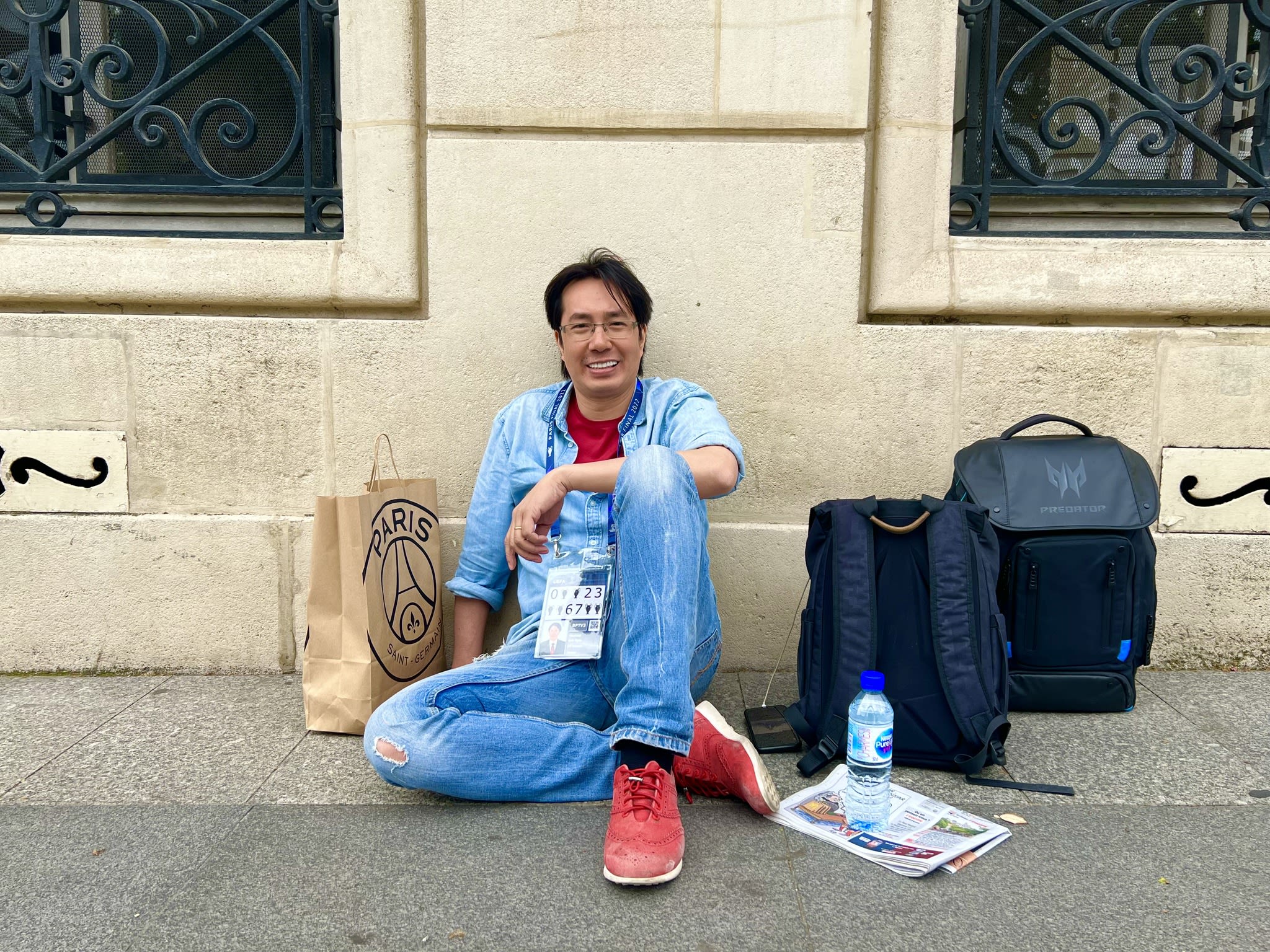
Such trips have instilled in me a kind of professional instinct: a sensitivity to danger, the ability to quickly judge whether to continue venturing or stop for safety. I always choose the middle ground – reaching the “hot” zone, but not taking a risk that I can’t turn back.
Someone asked: “Why don’t you go with a team to have support and protection?” I’ll tell you the truth: the only person I trust absolutely is myself . I trust my instincts, my expertise and my preparation.
But to venture into such places, you have to be fit . I am a very good runner, otherwise I would not be sitting here telling this story. You also need basic skills: know where the dangerous places are, avoid attracting attention, do not show off or reveal your identity too early.
In short, to have different articles, you must understand the risks , sense the danger, and know how to get out of bad situations .
I'm not sure I can give specific advice to young people studying journalism or colleagues in the profession.
But I know one thing for sure: if it weren't for those times of facing danger , I wouldn't be who I am today.
Journalist Truong Anh Ngoc
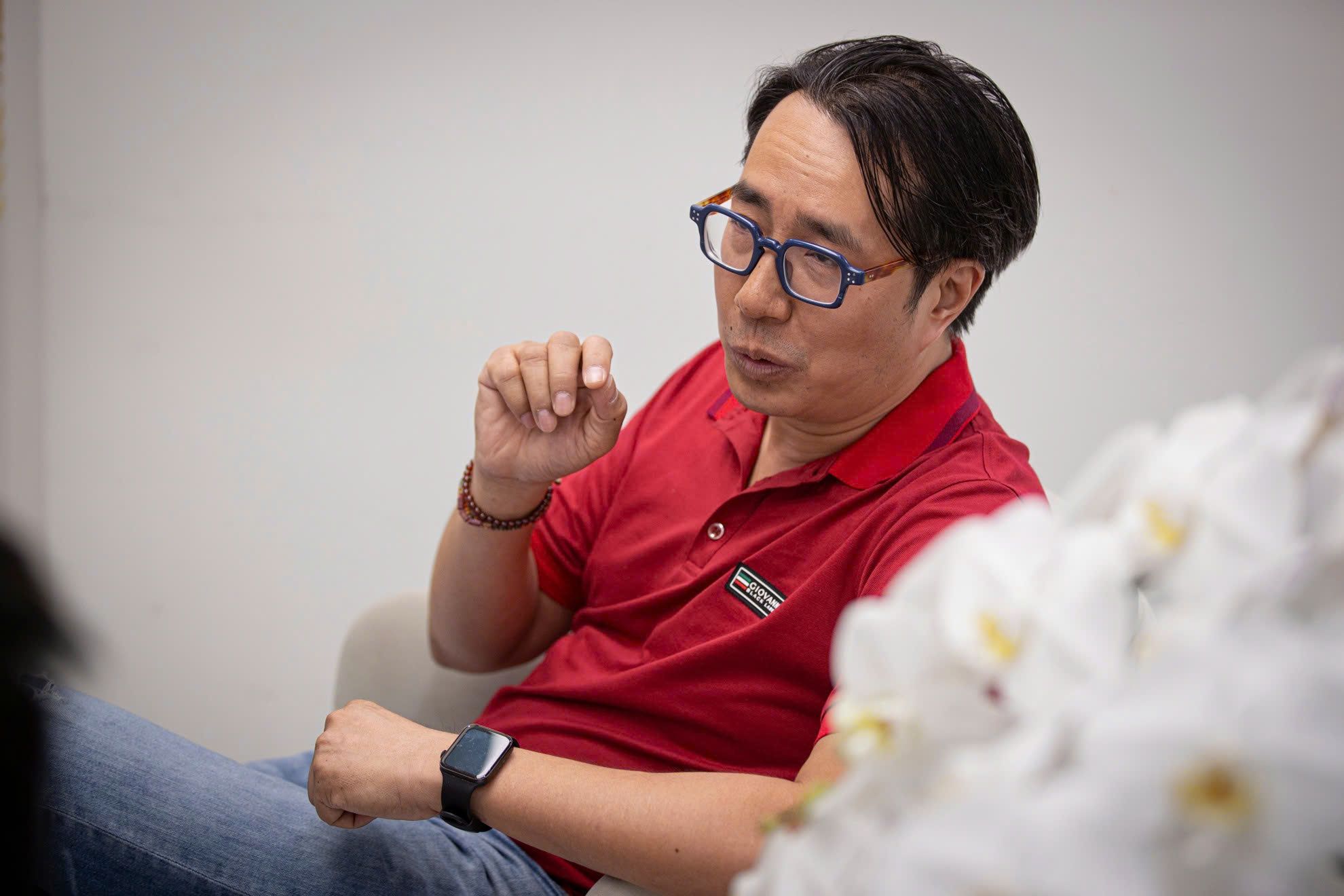
Reporter: Looking back on decades of experience, what advice do you have for young people to confidently enter the profession, especially in the current context?
Journalist Truong Anh Ngoc: To make a mark, you have to be yourself. But that “you” has to be different from everyone else. If you are working on the same topic as dozens of others, it is imperative that you find your own perspective, a unique material, and a unique way of expression.
Success doesn't come from copying someone else, copying a style of writing, or copying an idea. Success comes from creating something that only you can create .
That’s what got me where I am today. I put myself in situations that many people would avoid. Like in Germany last year, one day I took a train more than 500km north, then the next morning I returned, then continued 500km south. Not because I didn’t have an easier option, but because I knew that if I wanted to tell a different story, I had to choose a different path .
You can’t write about a slum just by sitting outside a cafe and looking at it and imagining. You have to go in, listen, feel, to really understand what’s going on inside. That way, the writing will be lived in , not just observed through a blurred lens.
What is the price of being different? It may put you in danger. It may go against the majority, speak out a different opinion. But if you choose to go against the majority, then go all the way , and never regret it.
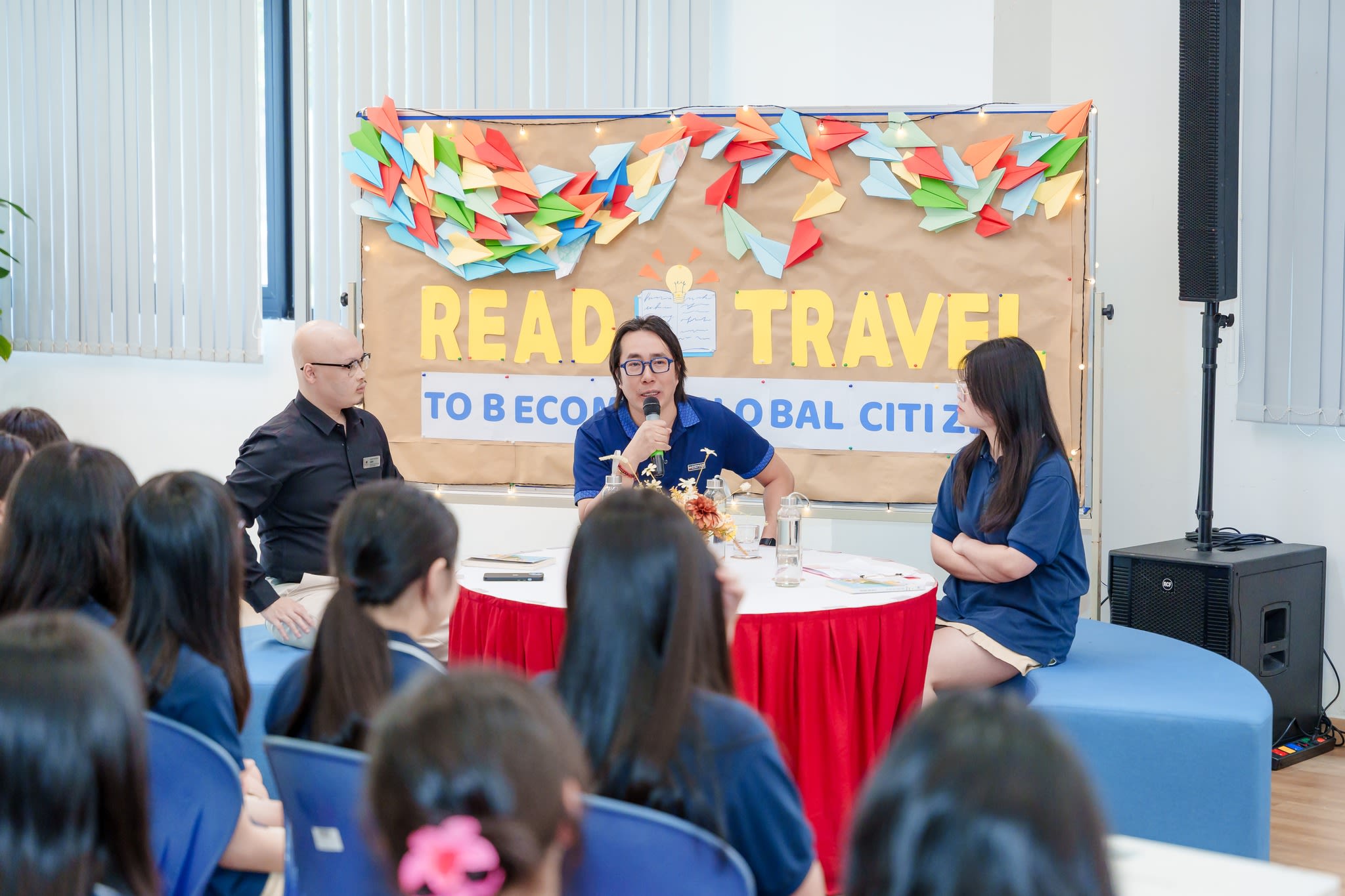
There is no old city, only old soul
Reporter: You are known as a journalist, commentator or travel writer, but some people also call you a “traveler” or jokingly call you a “tenant house owner”. With so many titles like that, which one do you feel you are most suited to and why?
Journalist Truong Anh Ngoc: I just don't like it when people remember me only as a commentator .
Actually, my football commentary career started more than 20 years ago - officially since 1999, that is 26 years. For football fans, it is understandable that they associate me with the role of a commentator.
But I always hope they see me in many other roles. Of course, you can't force anyone, if they are only interested in football, then maybe they are not interested in literature, travel books, other areas of my work.
Still, I hope they will know that I am more than just football.
In recent years, I have participated in TV shows with richer content. Through that, I have the opportunity to reach a very different, older audience. And I consider that a joy, another form of success.
But if asked: what role do I want to be remembered most? The answer is always journalist .
Because “journalist” encompasses everything I have done and am doing. A journalist can write articles, write books. Can travel, observe, tell stories like a traveler. Can sit in a studio like a “wise man”. Can also comment on football like an expert. And in fact, I have a journalist card. but (laughs), so calling me a journalist is most appropriate .
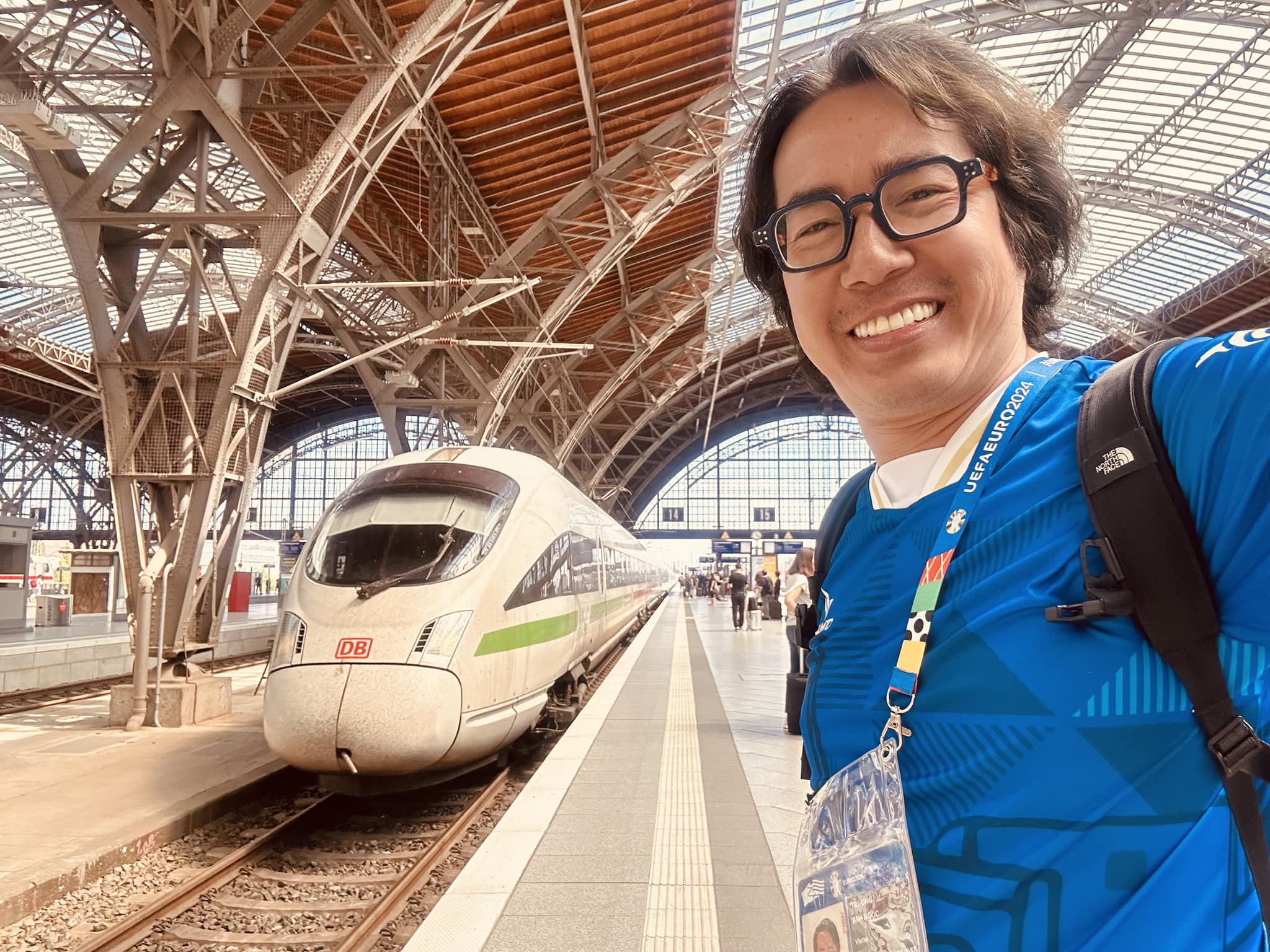
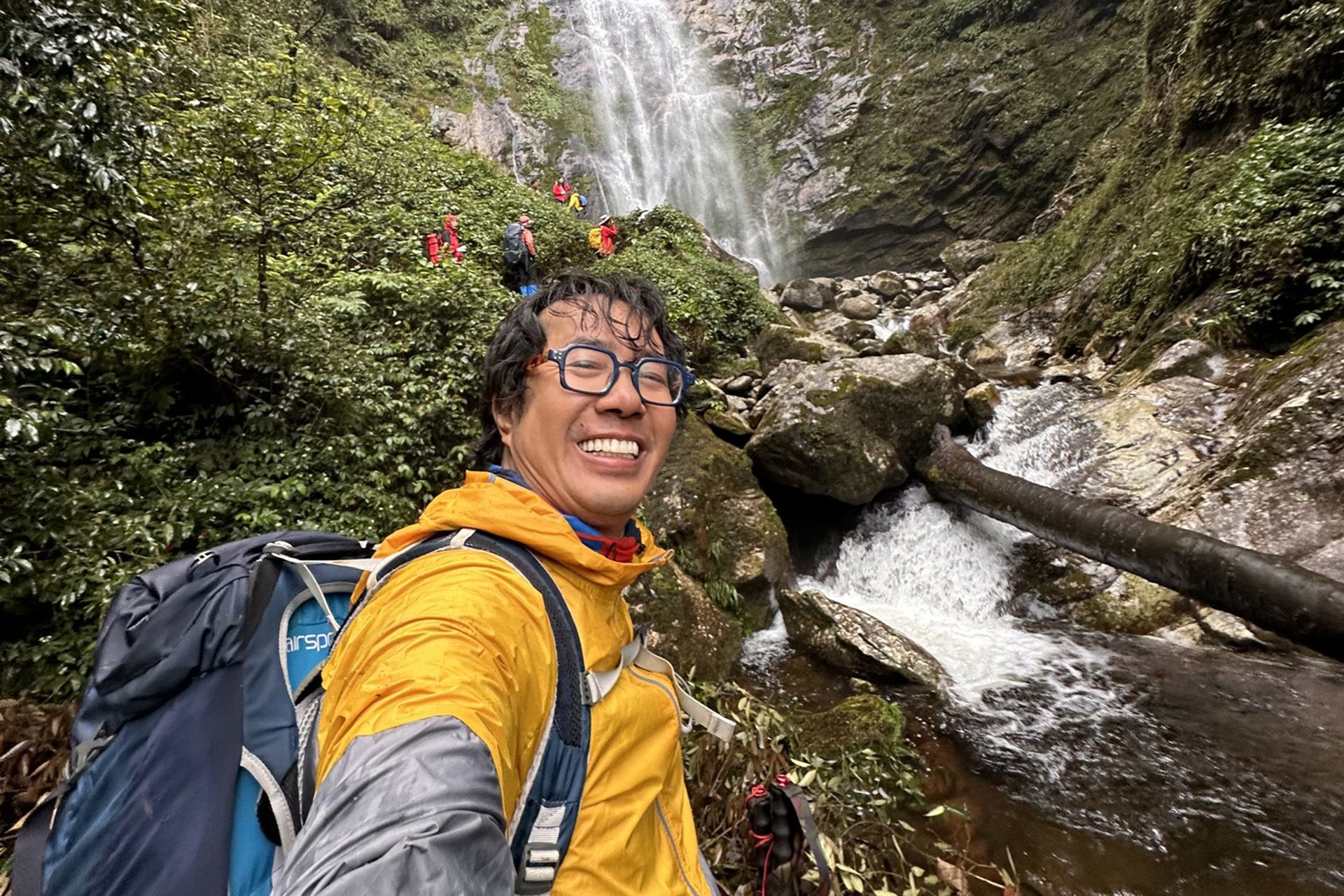
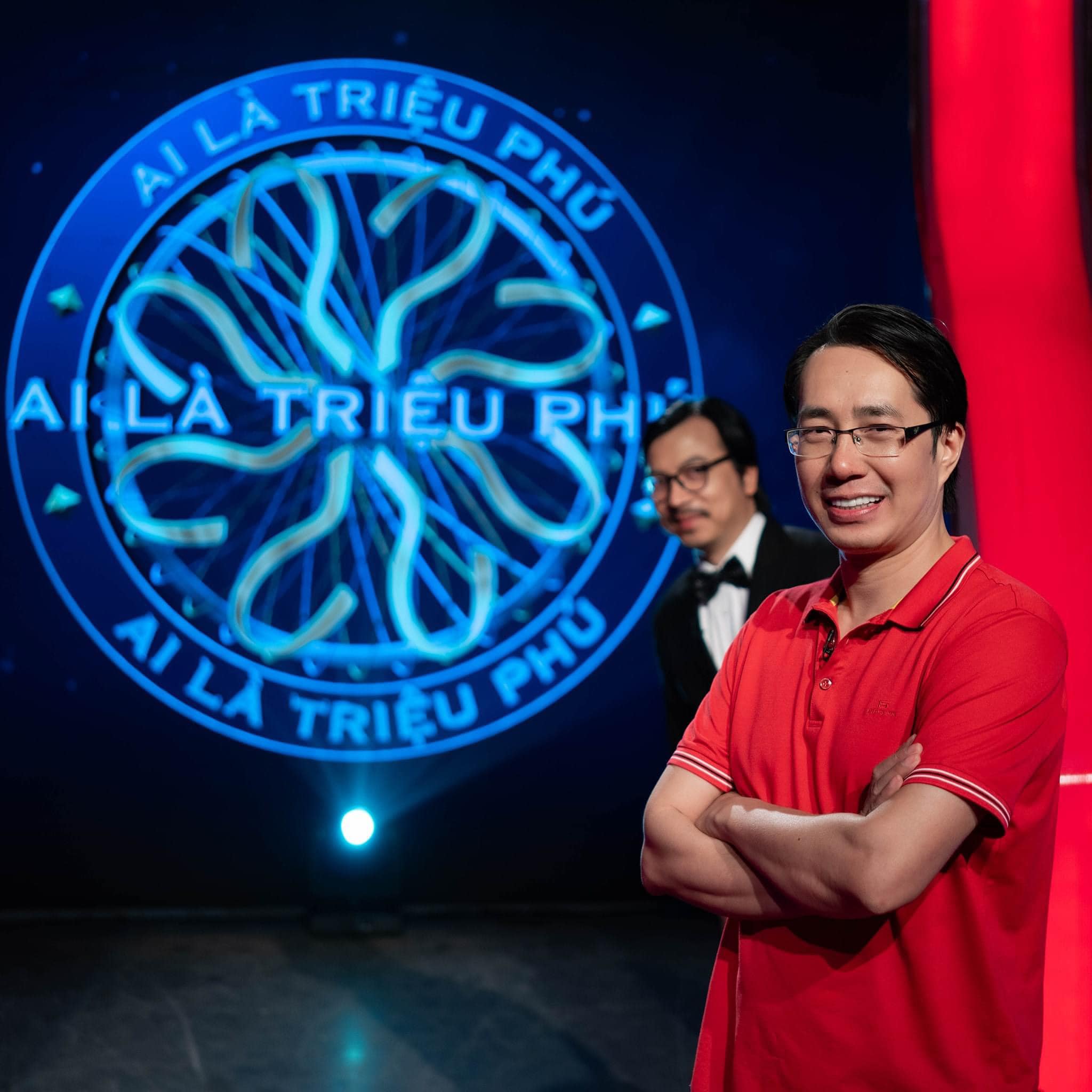
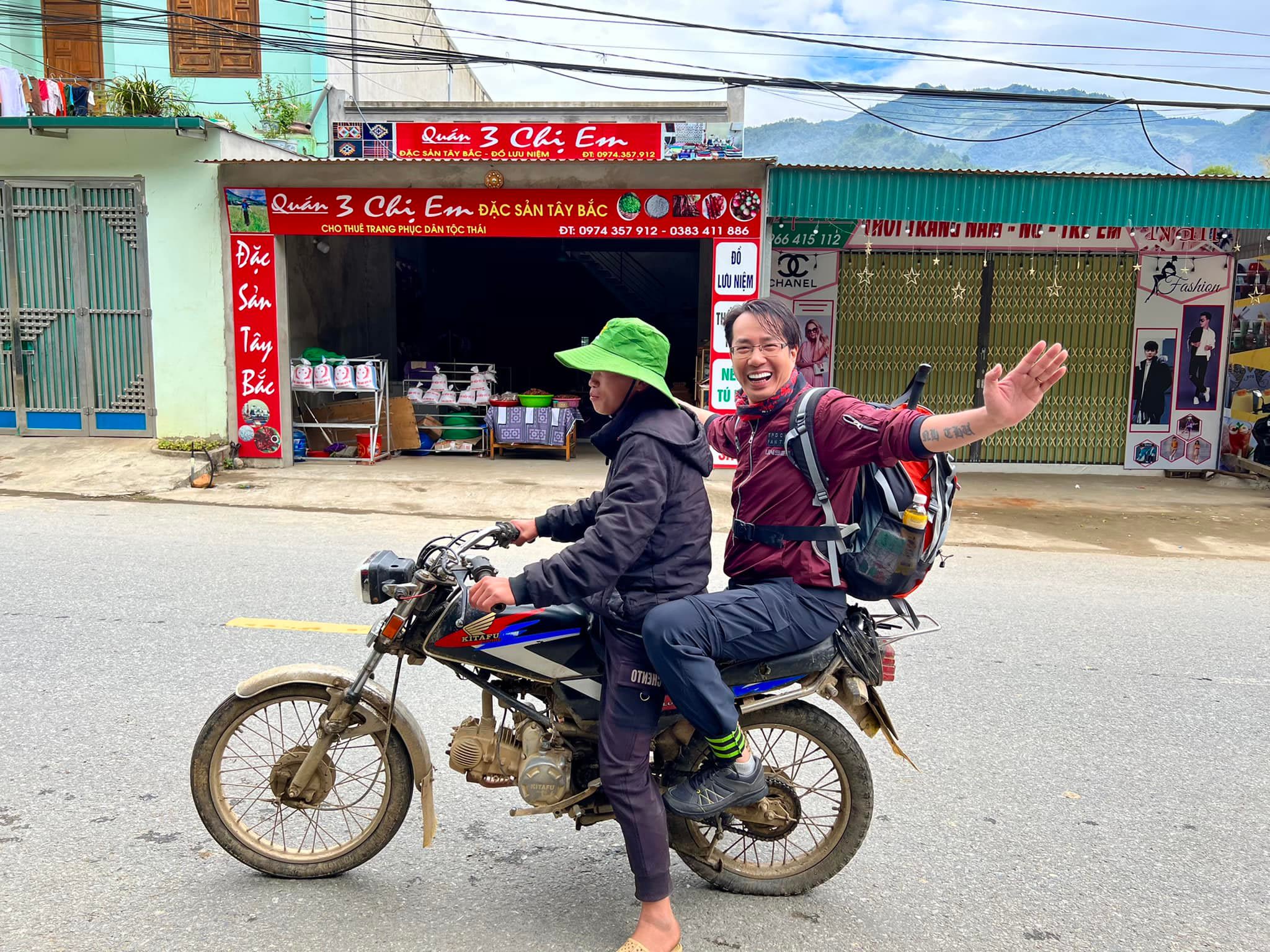
Health and Time - The Two Most Important Things
Reporter: You often mention “slow living”, “facing death”, and even wrote your own eulogy. What experiences do these thoughts come from? And how does it change the way you live your daily life?
Journalist Truong Anh Ngoc: Indeed, I once wrote a eulogy for myself. Many people heard that and said: “It’s bad luck to talk about death while you’re still alive!” . People often avoid mentioning death.
I think differently. Death is always present in each of us , whether you mention it or not. But when we actively talk about it, it is not to be afraid or pessimistic, but to remind ourselves to live better .
I have seen that in many countries, people talk about death very lightly. They do not see it as a gloomy ending, but as an opportunity to recall happy memories, good things about the deceased. I wrote my own eulogy as a way to tell people: if I go, remember that I lived a good life, and I lived a real life.
I have witnessed many relatives and friends gradually fading away from cancer – quietly, silently and painfully. Some because of not having regular health check-ups, some because of unhealthy lifestyles. By the time the disease was discovered, it was too late. Those experiences made me look at death not with fear, but with a sense of proactive living .
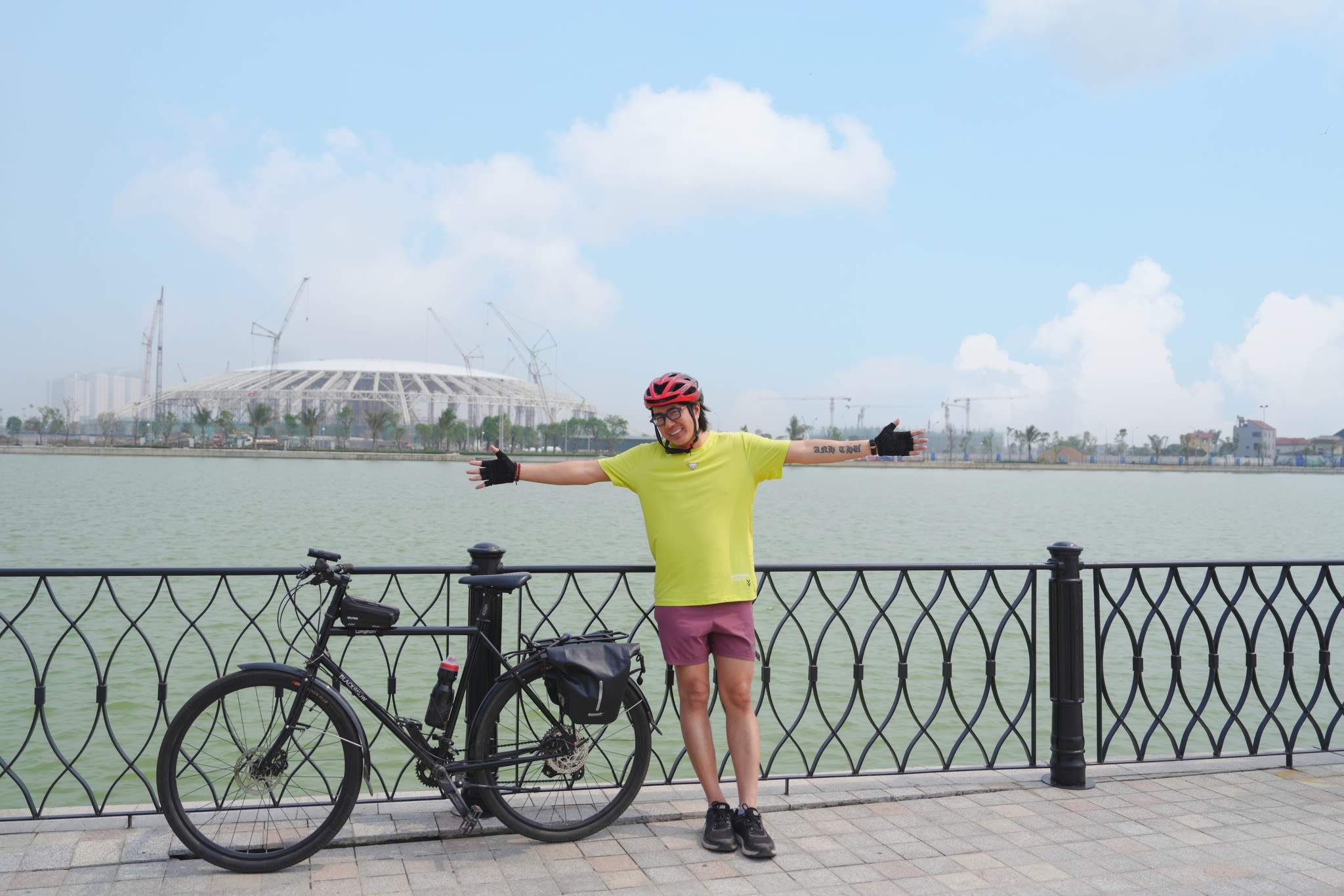
Journalist Truong Anh Ngoc regularly takes care of his health by playing many sports.
I choose to live slowly . Live to contemplate. Live to cherish every moment. And I have registered to be an organ donor . To me, organ donation is a kind way of living – because when I no longer exist, my body can still give life to others. It is a useful death , a death that is not wasted.
Since I signed up to be an organ donor, I find myself living more responsibly. I eat more moderately, stay away from unhealthy foods, think more positively, and exercise more regularly. Because now, I am not only living for myself – but also for those who may receive life in the future.
I often share this publicly, both in the media and on social networks. Not to attract attention, but to say: don't be afraid to talk about death. When we face it honestly, we will see that life is much more precious.
I often tell people on my personal page: “Go exercise! Go jogging!” Because after all, life only needs two most important things: health and time . When you have health, you will have more time. And when you have time, you will do more meaningful things.
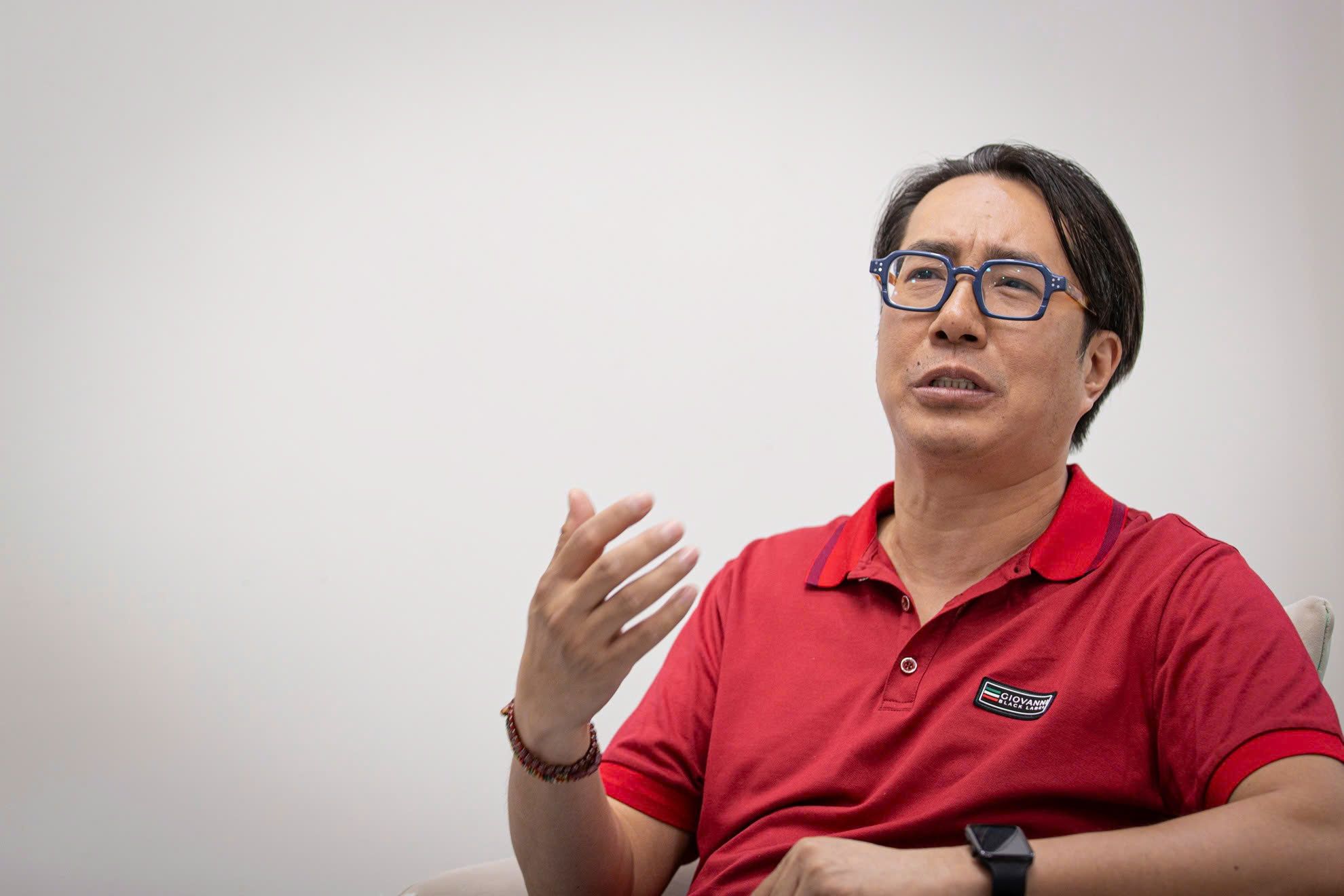
Reporter: There are online communities that make memes about you, and many people “troll” you because of your controversial statements. What do you think about that? How do you choose to respond?
Journalist Truong Anh Ngoc: Everyone has their own opinion. And when we express our opinion, it is not to please everyone, but simply because we truly believe it is right.
Me too. When I talk about football, which I have been doing for decades, I don’t care which team has more fans, which player is more popular. I don’t choose my words to avoid things. I say what I need to say , because I feel it is necessary to say it.
And of course, there are always opposing opinions . I accept that. If you argue in a civilized manner, I am willing to listen, even discuss. But if you attack people, fall into negativity, then sorry, I will exclude you from the dialogue.
Many people, especially celebrities, are so afraid of public opinion that they bend to other people's expectations . They say things they don't believe in, and live a life that is not true to their nature. I think that is not okay.
Of course, I don’t always have to speak up, I don’t have to meddle in everything. But if there’s something I really understand, if I think it’s worth saying , then I’ll say it. Not everyone has to listen. Maybe only one percent cares – but I’ll say it anyway.
Because if I was afraid of public opinion, if I was afraid of conflict, I would not have said it in the first place .
Journalist Truong Anh Ngoc
In a broader sense, journalism requires people with good life skills and the ability to do many things with a high desire for perfection. There is no such thing as saying: I have the right not to know this because I know so many other things.
Tôi cũng bảo với các đồng nghiệp trẻ: Em cần tự bóc băng ghi âm thành văn bản chữ, để mọi chi tiết ngấm vào từng chân tơ kẽ tóc. Cần phải học nghề, theo đúng châm ngôn: 3 tháng biết lẫy, 7 tháng biết bò, 9 tháng lò dò biết đi. Chứ đừng đốt cháy giai đoạn.
Làm báo, hãy xác định tác phẩm của mình phải hướng tới phục vụ những người giỏi nhất, khó tính nhất trong cộng đồng, chứ đừng nghĩ họ đọc qua loa, qua quýt; đừng nghĩ nói sai, nói nông tí, nói thiếu kín kẽ tí cũng chả ai để ý đâu. Không làm thế được. Mua danh ba vạn, bán danh ba đồng. Kiếm củi ba năm, đốt chỉ một giờ.
Phóng viên: Không phải ai cũng có điều kiện hoặc can đảm để “đi khi ta còn trẻ” (như lời tựa cuốn sách của anh). Anh có lời khuyên nào dành cho người trẻ còn chần chừ vì áp lực tài chính, sợ thất bại, sợ đơn độc?
Nhà báo Trương Anh Ngọc: Khi viết câu slogan “Đi khi ta còn trẻ” , tôi hướng tới các bạn trẻ, nhưng đồng thời cũng là một lời nhắc nhở cho chính mình.
Tôi đã đi nhiều nơi trên thế giới và nhận ra rằng, ở các nước phát triển, người trẻ thường bắt đầu hành trình khám phá từ rất sớm. Họ tận dụng khoảng thời gian “gap year” để du lịch, làm việc thiện nguyện, tích lũy trải nghiệm sống, bởi đó là thứ giúp họ trưởng thành và có giá trị hơn trong mắt các nhà tuyển dụng.
Khi tôi xuất bản cuốn sách mang thông điệp ấy, điều đầu tiên mà rất nhiều bạn trẻ đặt ra là: “Làm sao mà đi được, tiền đâu mà đi?” Nhưng thật ra, tiền không phải là vấn đề cốt lõi .
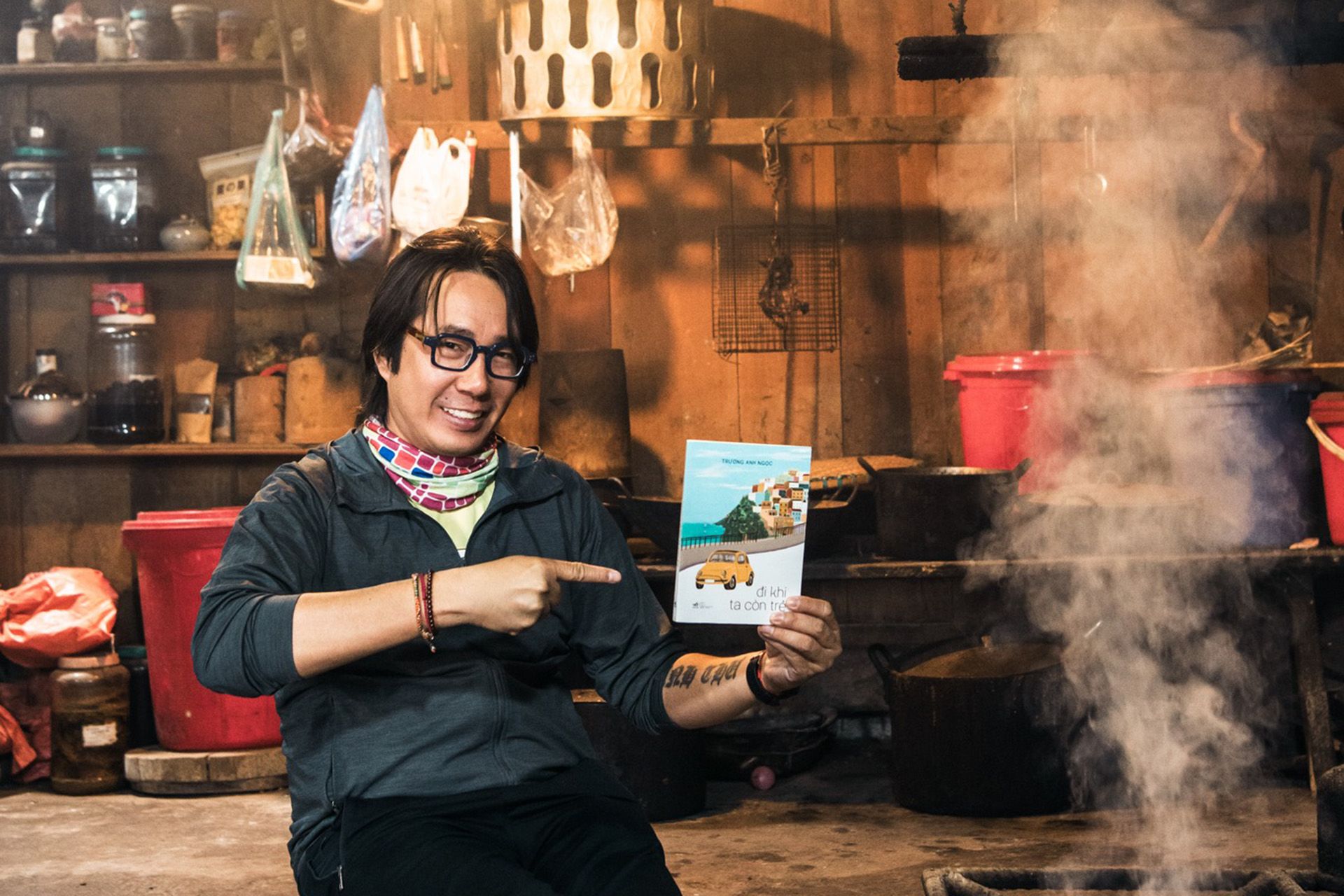
Nhà báo Trương Anh Ngọc cùng cuốn sách "Đi khi ta còn trẻ".
Gần đây, tôi chia sẻ với các bạn một chuyến đi Tú Làn 4 ở Quảng Bình - hành trình 6 ngày 5 đêm, trong đó có 4 ngày phải liên tục băng rừng gần 40 cây số. Mỗi đêm ngủ ở một lán trại khác nhau. Bạn phải leo núi, bơi hang, đi rừng, không điện, không wifi, không giường êm chăn ấm.
Đó không phải là chuyện có tiền là làm được. Bạn cần có sức khỏe, cần thể lực, cần kỹ năng sinh tồn. Bạn phải không sợ muỗi, không ngại vắt, không ngại đêm rừng tối mịt.
Nói cách khác, đây không phải câu chuyện của tiền bạc. Đây là câu chuyện của lòng dũng cảm.
Nhà báo Trương Anh Ngọc
Nhiều bạn trẻ hiện nay bị “mắc kẹt” trong vùng an toàn. Các bạn không đủ bản lĩnh để rời khỏi sự quen thuộc, để đi một mình, để bước vào điều chưa biết.
Tôi đã bắt đầu đi từ khi còn rất trẻ. Tôi lớn lên trong những chuyến đi và thường một mình. Tôi đi đến đâu, ăn được ở đó. Không nhớ cơm phở. Không bám víu điều gì. Tôi quen với sự di chuyển, quen với việc thích nghi. Vậy thì tại sao các bạn lại không thể?
Bạn chỉ cần xác định một điều: thứ gì thực sự quan trọng để thực hiện được một chuyến đi? Và rồi bạn sẽ nhận ra, điều quan trọng không phải là tiền, mà là thể lực, bản lĩnh và quyết tâm .
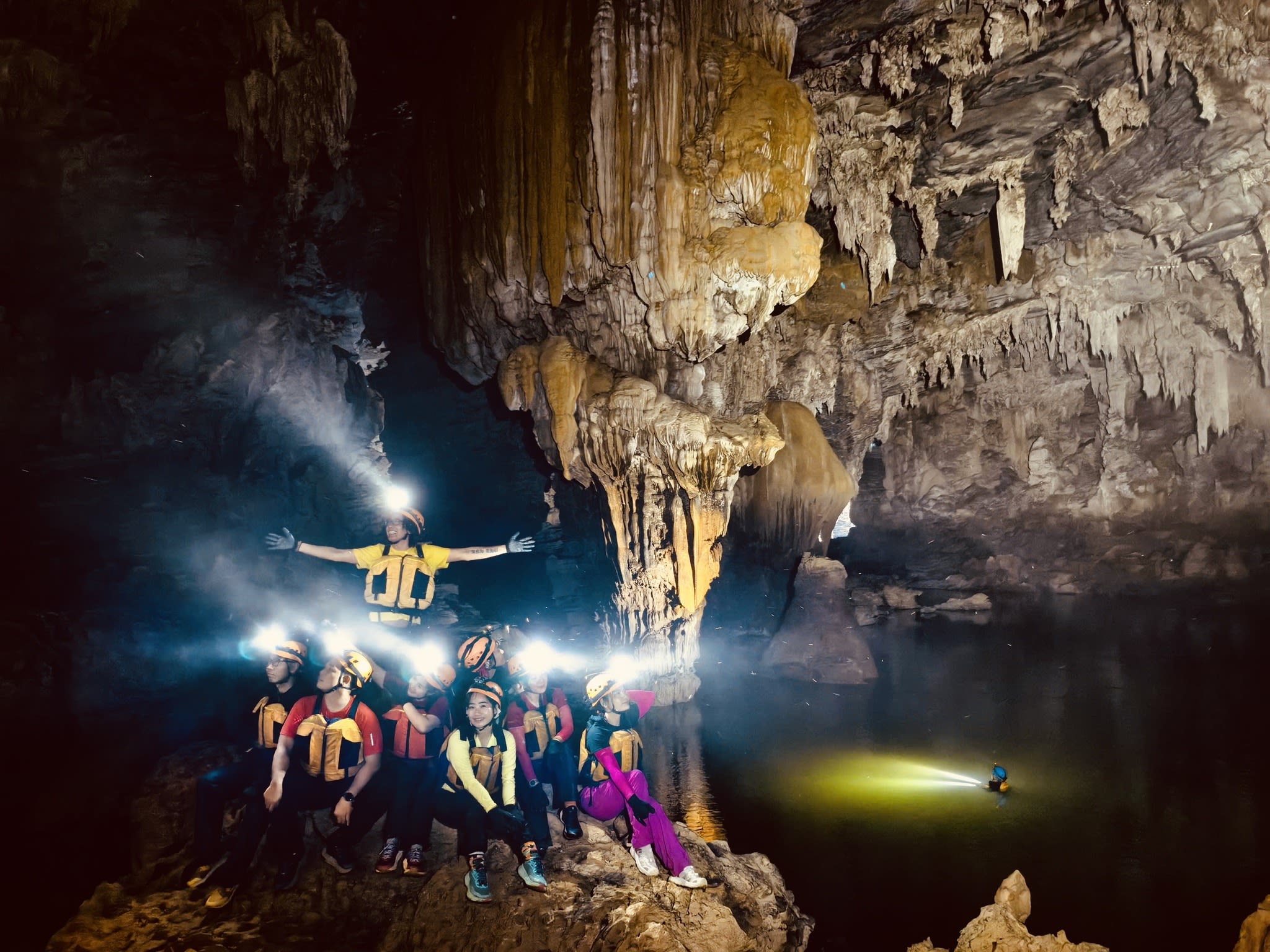
Chuyến đi của nhà báo Trương Anh Ngọc tại Tú Làn 4, Quảng Bình.
Nếu bạn thực sự muốn đi, bạn phải bắt đầu bằng lao động, bằng tiết kiệm, bằng rèn luyện thể chất, chứ không thể nghĩ đó là hành trình kiểu "xách ba lô lên và đi". Không có chuyện đó. Đi là một hành trình tích lũy, cả về nội lực lẫn tinh thần.
Tôi nhớ năm 2016, một bạn trẻ người Anh, khoảng 21 tuổi, leo Fansipan một mình, gặp tai nạn và qua đời. Sau đó, trên các diễn đàn, rất nhiều bạn Việt Nam chỉ trích bạn ấy: “Phí đời”, “bồng bột”, “làm khổ cha mẹ”… Nhưng tôi đặt câu hỏi ngược lại: Ở tuổi ấy, bạn có dám đi một mình không? Bạn có đủ sức khỏe, kỹ năng, hay lòng can đảm để làm điều đó không?
Bạn ấy đã làm được. Tai nạn là chuyện không ai mong muốn. Nhưng nếu bạn không làm được như người ta, thì ít nhất hãy học được điều gì đó từ hành trình của họ , thay vì ngồi chỉ trích từ vùng an toàn của mình.
Phóng viên: Anh đã đi rất nhiều nơi, trải nghiệm nhiều cuộc sống khác nhau. Nhưng liệu còn hành trình nào mà anh vẫn còn ấp ủ chưa thực hiện? Anh còn muốn để lại điều gì cho người đọc, người xem đã dõi theo mình?
Nhà báo Trương Anh Ngọc : Nếu hỏi tôi có đặt ra kế hoạch cụ thể nào cho tương lai, như phải đến một đất nước nào đó, một vùng đất nào đó, thì câu trả lời là không. Tôi không lên danh sách, cũng không có mục tiêu kiểu “phải đi bao nhiêu nước”, “check-in bao nhiêu địa điểm”.
Nhiều người có thói quen đếm số trang còn lại trong hộ chiếu, đếm số quốc gia từng đặt chân đến, số nhà hàng Michelin từng ghé qua. Đó có thể là cách sống của những người giàu có, nhưng với tôi, cuộc sống không phải là một bộ sưu tập các con số hay thành tích để thống kê . Điều quý giá nhất là những trải nghiệm, là hành trình sống – không đo đếm bằng số lượng, mà bằng chiều sâu của cảm xúc và ký ức.
Với tôi, mỗi năm chỉ cần được rời khỏi Việt Nam vài lần, được tiếp tục khám phá những ngọn núi phía Tây Bắc, chui vào những hang đá sâu thẳm ở miền Trung hay quay lại các hang động của Quảng Bình - thế là đủ.
Tôi đi để thử thách bản thân, để trưởng thành hơn sau mỗi hành trình.
Nhà báo Trương Anh Ngọc
Dù có quay lại những nơi cũ, tôi vẫn thấy mới. Bởi chính tôi đã đổi khác. Mỗi lần trở lại là một lần soi chiếu lại bản thân, nhận diện những điều mới mẻ trong mình. Cảnh vật có thể không đổi, nhưng con người mang trong mình khát vọng thì không bao giờ dậm chân tại chỗ.
Tôi rất tâm đắc một câu nói: “Bạn chỉ thực sự già đi khi bạn không còn khao khát”.
Chừng nào bạn còn muốn đi, còn muốn khám phá, còn háo hức với thế giới, thì tuổi tác chỉ là một con số trên giấy tờ, không phải giới hạn của tâm hồn .
Phóng viên: Xin cảm ơn nhà báo Trương Anh Ngọc vì cuộc trò chuyện!
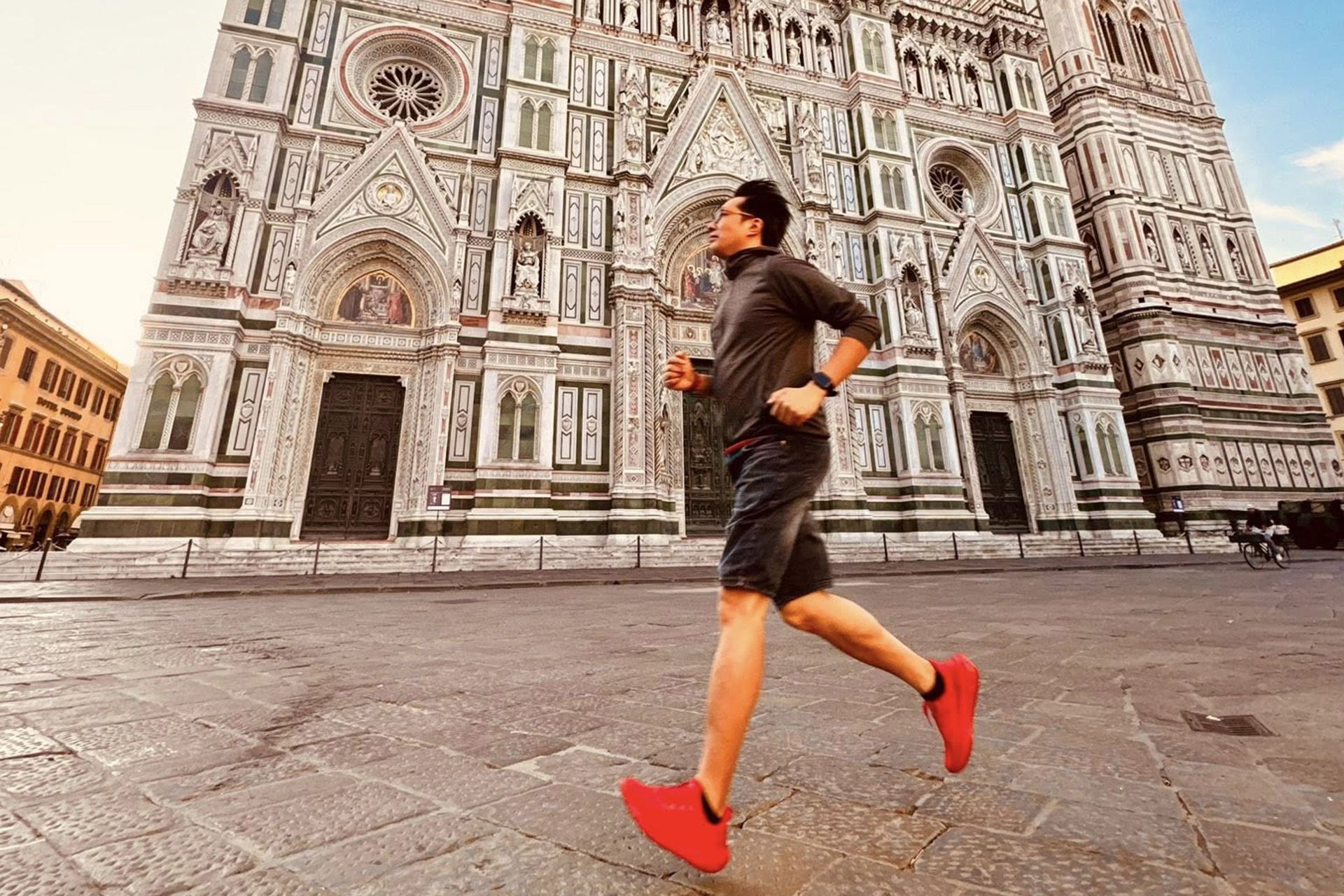
Trương Anh Ngọc (sinh ngày 19 tháng 1 năm 1976). Anh được biết đến là một trong những phóng viên thể thao hàng đầu của Việt Nam, đặc biệt về bóng đá và nhất là bóng đá Italia.
Ngoài ra, anh cũng nổi tiếng là một trong những bình luận viên được yêu thích qua nhiều giải đấu và là phóng viên tác nghiệp tại các sự kiện thể thao lớn trong và ngoài nước. Kể từ năm 2010, anh là phóng viên Việt Nam đầu tiên và duy nhất tới nay được tạp chí danh tiếng France Football mời tham gia bình chọn cho danh hiệu Quả bóng vàng.
Ngoài việc là phóng viên thể thao, công việc chính của Anh Ngọc là phóng viên thông tin quốc tế. Anh là trưởng cơ quan thường trú của Thông tấn xã Việt Nam tại Italia trong giai đoạn 2007–2010 và 2013–2016.
Trong các giai đoạn 2010–2013 và 2016 đến nay, anh còn làm biên tập viên rồi Thư ký tòa soạn cho báo Thể thao & Văn hóa, ngoài ra cũng là cộng tác viên của nhiều đài truyền hình cùng nhiều tờ báo và tạp chí lớn.
Bên cạnh công việc phóng viên, Anh Ngọc cũng đã cho ra mắt những cuốn ký sự viết về hành trình khám phá và tác nghiệp của mình. Cuốn sách đầu tay "Nước Ý, câu chuyện tình của tôi" được phát hành vào tháng 5 năm 2012 có được nhiều đánh giá rất tích cực từ người hâm mộ. Hiện, anh đã xuất bản 5 đầu sách và tiếp tục viết các tác phẩm tiếp theo.
Ngày xuất bản: 17/6/2025
Tổ chức thực hiện: HOÀNG NHẬT
Nội dung-Trình bày: PHAN THẠCH - HÀ CƯỜNG
Ảnh: TRƯƠNG ANH NGỌC, SƠN TÙNG
Nhandan.vn
Nguồn:https://nhandan.vn/special/nha-bao-truong-anh-ngoc/index.html








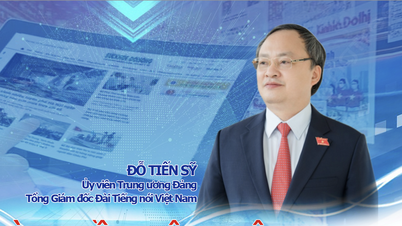

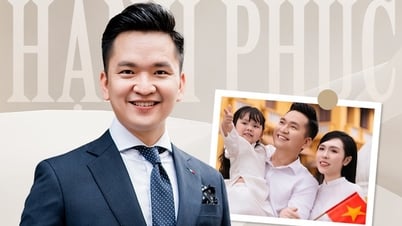

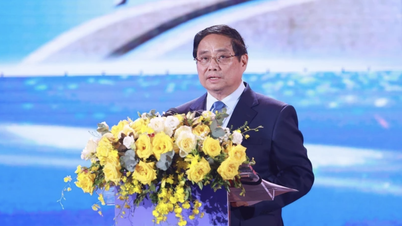

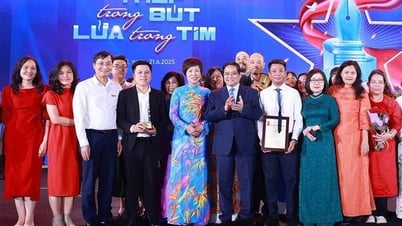

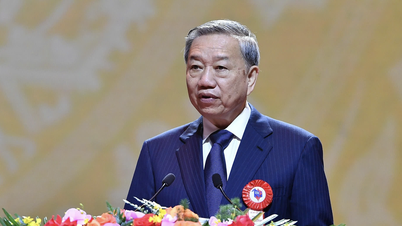
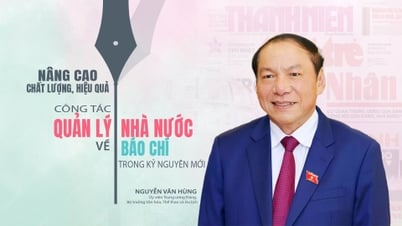


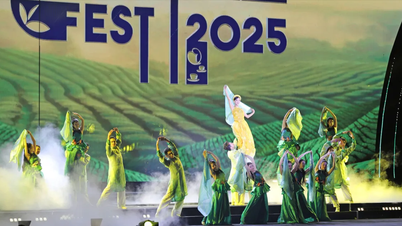



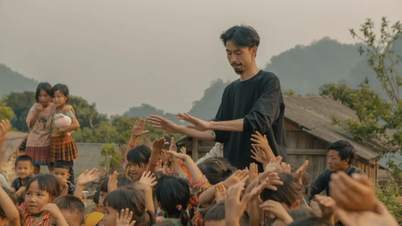
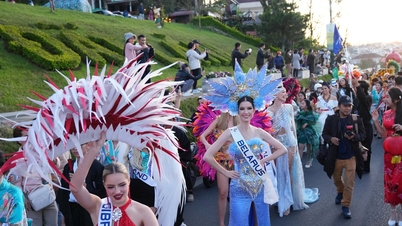







![[Video] “Happy Vietnam 2025” Award: Contributing more beautiful slices of a humane and culturally rich country](https://vphoto.vietnam.vn/thumb/402x226/vietnam/resource/IMAGE/2025/12/07/1765120096965_gen-h-z7302026251876-0c4feb61bdc05ac1e4a8af98b1ba524c-701-jpg.webp)
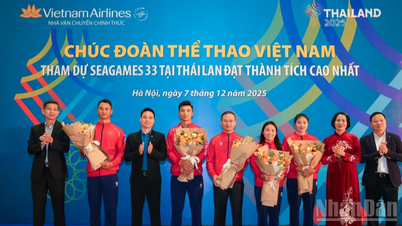
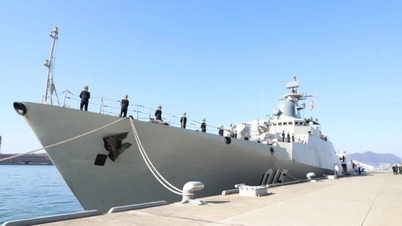

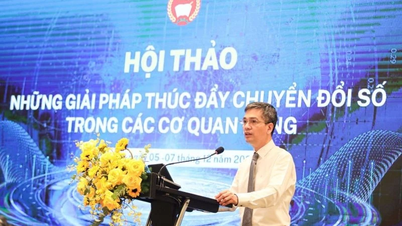
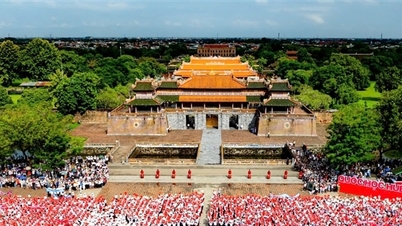

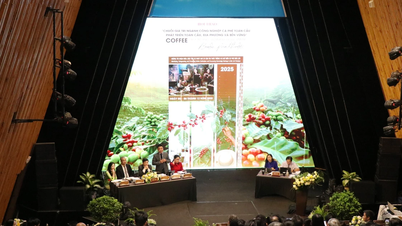





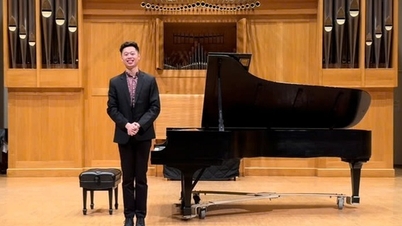

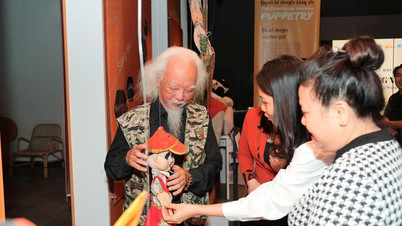
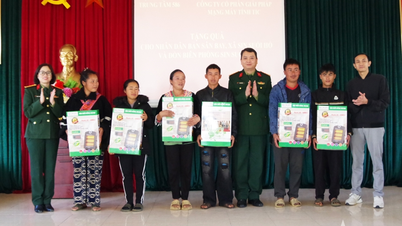

















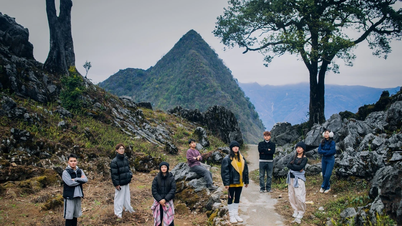


















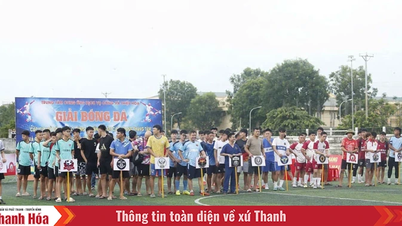

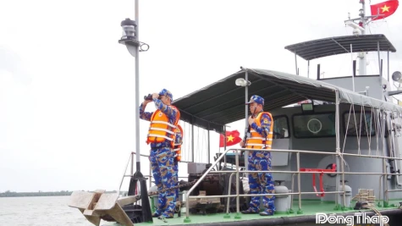

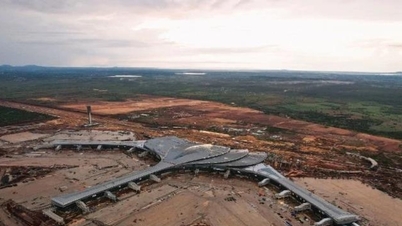

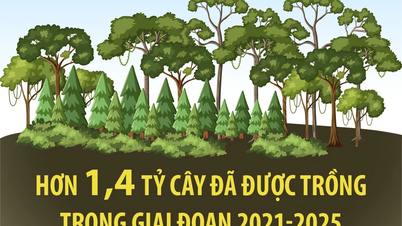



















Comment (0)